This class describes the polynomial interpolation for computing the optimal time. More...
#include <EMM_PolynomialInterpolationTimeStep.h>
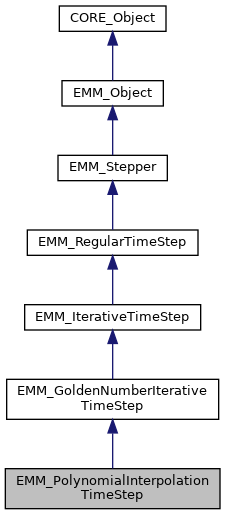
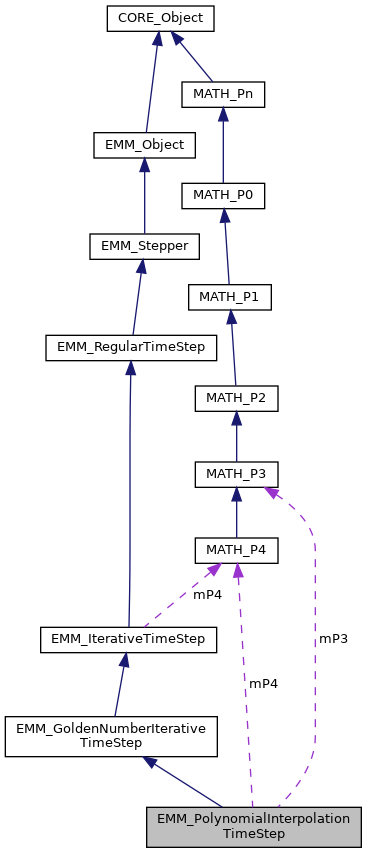
Public Member Functions | |
| virtual tBoolean | optimizeTimeFunction (tReal &dt, const tReal &dt_bound, tUInteger &evaluationsNumber) |
| optimize the time step function More... | |
| void | setMinTimeStep (const tReal &dt) |
| set the min time step of iterative time step computing More... | |
| void | setInitialTimeType (const tFlag &t) |
| set the initial time type More... | |
| void | setInitialTimeType (const tString &t) |
| set the initial time type More... | |
| void | resetInitialTimeStepToOptimalOne (const tBoolean &isReset) |
| set if the initial time step is set to optimal time step More... | |
| void | setIntegrationOrder (const tFlag &order) |
| set the order of evaluation the time function More... | |
| void | setMaximumEvaluationsNumber (const tUInteger &n) |
| set the max evalution of Energy for finding the best dt for which the variation of energy is <0 More... | |
| void | setZoomOutFactor (const tReal &z) |
| set the zoom out factor >1 More... | |
| void | setZoomInFactor (const tReal &z) |
| set the zoom in factor <1 More... | |
| void | setMaxTimeStepGap (const tReal &dt) |
| set the max gap betewen 2 time step More... | |
| void | setTimeStepBound (const tReal &dt) |
| set the max time step More... | |
| const tReal & | getMinTimeStep () const |
| get the min time step of iterative time step computing More... | |
| const tFlag & | getInitialTimeType () const |
| get the initial type type More... | |
| const tUInteger & | getMaximumEvaluationsNumber () const |
| get the max evalution of Energy for finding the best dt for which the variation of energy is <0 More... | |
| const tReal & | getZoomOutFactor () const |
| set the zoom out factor >1 More... | |
| const tReal & | getZoomInFactor () const |
| set the zoom in factor <1 More... | |
| const tFlag & | getIntegrationOrder () const |
| get integration order More... | |
| const tReal & | getMaximumTimeStepGap () const |
| get the maximum time step gap More... | |
| const tReal & | getTimeStepBound () const |
| get the max time step More... | |
| tReal | computeInitialTimeStep () |
| compute initial time steps More... | |
| virtual tBoolean | computeNewTimeStep (tReal &dt, tUInteger &nEvaluations) |
| compute the new time step More... | |
| tReal | computeTimeFunction (const tReal &t) |
| compute the time function at t More... | |
| const tReal & | computeTimeFunction () const |
| compute the time function at 0 More... | |
| tReal | computeTimeFunctionDerivative (const tReal &t, tReal &dF_dt) |
| compute the time function at t and its first derivative More... | |
| const tReal & | computeTimeFunctionDerivative (tReal &dF_dt_0) const |
| compute the time function at 0 and its first derivative at time =0 More... | |
| virtual tString | toString () const |
| turn the regular time into a string More... | |
| tBoolean | setSystem (SP::EMM_LandauLifschitzSystem system) |
| set the reverse system relation More... | |
| void | resetSystem () |
| reset the reverse system relation More... | |
| void | setCharacteristicTime (const tReal &t) |
| set the characteristic time the real time will be t. mTc in seconds More... | |
| void | setTargetTime (const tReal &t) |
| set the end time with respect of the characteristic time real time = t * getCharacteristicTime() More... | |
| void | setDt (const tReal &dt) |
| set the time step More... | |
| void | setDtFactor (const tReal &f) |
| set the dt factor More... | |
| void | setTimeStepsNumber (const tUInteger &n) |
| set the time steps number More... | |
| const tReal & | getDtFactor () const |
| get the dt factor More... | |
| const tReal & | getTargetTime () const |
| get the end time More... | |
| const tReal & | getCharacteristicTime () const |
| get the characteristic time More... | |
| const tUInteger & | getTimeStepsNumber () const |
| get the time steps number More... | |
| const tReal & | getDt () const |
| get the time step More... | |
| tReal & | getDt () |
| get the time step More... | |
| void | getSharedPointer (SP::CORE_Object &p) |
| get the shared pointer of this class into p More... | |
| void | getSharedPointer (SPC::CORE_Object &p) const |
| get the shared pointer of this class into p More... | |
| tString | getClassName () const |
| return the class name of the object More... | |
| tString | getIdentityString () const |
| return the identity string of the object of the form className_at_address More... | |
| tString | getPointerAddress () const |
| return the identity string of the object More... | |
| template<class T > | |
| tBoolean | isInstanceOf () const |
| test if the clas T is an instance of this class More... | |
| tBoolean | isInstanceOf (const tString &name) const |
| test if the object is an instance of className More... | |
Static Public Member Functions | |
| static SP::EMM_PolynomialInterpolationTimeStep | New () |
| build a shared pointer associated to the class More... | |
| static void | setIsMemoryChecked (const tBoolean &v) |
| set if the memory checking is used More... | |
| static void | setOut (SP::CORE_Out out) |
| set the output stream More... | |
| static void | resetOut () |
| reset the output stream More... | |
| static void | setThread (SP::CORE_Thread thread) |
| set the thread More... | |
| static void | resetThread () |
| reset the output stream More... | |
| static CORE_Out & | out () |
| get the output More... | |
| static SP::CORE_Out | getOut () |
| get the output More... | |
| static CORE_Thread & | getThread () |
| get the profilier More... | |
| static const tBoolean & | isMemoryChecked () |
| get if the memory checking is used More... | |
| static tString | getClassName (const tString &identityString) |
| return the class name of the object More... | |
| template<class T > | |
| static tString | getTypeName () |
| get type name More... | |
| static tBoolean | is64Architecture () |
| return true if the machine is a 64 bits machine More... | |
| static tBoolean | is32Architecture () |
| return true if the machine is a 32 bits machine More... | |
| static tString | pointer2String (const void *obj) |
| return the string representation of a pointer More... | |
| static void | printObjectsInMemory (ostream &f) |
| print object in memory More... | |
| static void | printObjectsInMemory () |
| print object in memory in the standart output More... | |
| static tChar | getMaxChar () |
| get the max value for tChar type More... | |
| static tChar | getMinChar () |
| get the min value for tChar type More... | |
| static tUChar | getMaxUChar () |
| get the max value for tUChar type More... | |
| static tUChar | getMinUChar () |
| get the min value for tUChar type More... | |
| static tSInt | getMaxSInt () |
| get the max value for tSInt type More... | |
| static tSInt | getMinSInt () |
| get the min value for tSInt type More... | |
| static tUSInt | getMaxUSInt () |
| get the max value for tUSInt type More... | |
| static tUSInt | getMinUSInt () |
| get the min value for tUSInt type More... | |
| static tInt | getMaxInt () |
| get the max value for tInt type More... | |
| static tInt | getMinInt () |
| get the min value for tInt type More... | |
| static tUInt | getMaxUInt () |
| get the max value for tUInt type More... | |
| static tUInt | getMinUInt () |
| get the min value for tUInt type More... | |
| static tLInt | getMaxLInt () |
| get the max value for tLInt type More... | |
| static tLInt | getMinLInt () |
| get the min value for tLInt type More... | |
| static tULInt | getMaxULInt () |
| get the max value for tULInt type More... | |
| static tULInt | getMinULInt () |
| get the min value for tULInt type More... | |
| static tLLInt | getMaxLLInt () |
| get the max value for tULInt type More... | |
| static tLLInt | getMinLLInt () |
| get the min value for tLLInt type More... | |
| static tULLInt | getMaxULLInt () |
| get the max value for tULLInt type More... | |
| static tULLInt | getMinULLInt () |
| get the min value for tULLInt type More... | |
| static tFloat | getMaxFloat () |
| get the max value for tFloat type More... | |
| static tFloat | getMinFloat () |
| get the min value for tFloat type More... | |
| template<class T > | |
| static T | getEpsilon () |
| get the epsilon value for T type More... | |
| template<class T > | |
| static T | getInfinity () |
| get the infinity for T type More... | |
| static tFloat | getFloatEpsilon () |
| get the epsilon value for tFloat type More... | |
| static tFloat | getFloatInfinity () |
| get the infinity value for tFloat type More... | |
| static tDouble | getMaxDouble () |
| get the max value for tDouble type More... | |
| static tDouble | getMinDouble () |
| get the min value for tDouble type More... | |
| static tDouble | getDoubleInfinity () |
| get the infinity value for tFloat type More... | |
| static tDouble | getDoubleEpsilon () |
| get the epsilon value for tDouble type More... | |
| static tLDouble | getMinLDouble () |
| get the min value for tLDouble type More... | |
| static tLDouble | getMaxLDouble () |
| get the max value for tLDouble type More... | |
| static tLDouble | getLDoubleEpsilon () |
| get the epsilon value for tLDouble type More... | |
| static tDouble | getLDoubleInfinity () |
| get the infinity value for tDouble type More... | |
| static tIndex | getMaxIndex () |
| get the max value for the array/vector indexing type More... | |
| static tIndex | getMinIndex () |
| get the min value for the array/vector indexing type More... | |
| static tUIndex | getMaxUIndex () |
| get the max value for difference the array/vector indexing type More... | |
| static tUIndex | getMinUIndex () |
| get the min value for difference the array/vector indexing type More... | |
| static tFlag | getMaxFlag () |
| get the max value for the tFlag type More... | |
| static tFlag | getMinFlag () |
| get the min value for the tFlag type More... | |
| static tUInteger | getMaxUInteger () |
| get the max value for the unsigned integer type More... | |
| static tUInteger | getMinUInteger () |
| get the min value for the unsigned integer type More... | |
| static tInteger | getMaxInteger () |
| get the max value for the integer type More... | |
| static tInteger | getMinInteger () |
| get the min value for the integer type More... | |
| static tReal | getMaxReal () |
| get the max value for the real type More... | |
| static tReal | getMinReal () |
| get the min value for the real type More... | |
| static tReal | getRealEpsilon () |
| get the eps which is the difference between 1 and the least value greater than 1 that is representable. More... | |
| static tReal | getRealInfinity () |
| get the infinity value More... | |
| template<class T > | |
| static T | computeEpsilon () |
| compute epsilon More... | |
Static Public Attributes | |
| static const tFlag | INITIAL_TIME_AS_REGULAR =0 |
| static const tFlag | INITIAL_TIME_AS_OPTIMAL_AFFINE_H =1 |
| static const tFlag | INITIAL_TIME_AS_MAX_LINEAR_CONSTANT_H =2 |
| static const tReal | Mu0 =4*M_PI*1e-07 |
| static const tReal | Gamma =-1.7e11 |
| static const tDimension | X =0 |
| static const tDimension | Y =1 |
| static const tDimension | Z =2 |
| static const tReal | NULL_VALUE [] ={0,0,0} |
Protected Member Functions | |
| EMM_PolynomialInterpolationTimeStep (void) | |
| create the class More... | |
| virtual | ~EMM_PolynomialInterpolationTimeStep (void) |
| destroy the class More... | |
| void | computeOptimalTimeSteps (tReal &dt_c, tReal &dt_l) |
| compute optimal time steps More... | |
| virtual tBoolean | isSystemCompatible (SPC::EMM_LandauLifschitzSystem system) const |
| return true if the system is compatible More... | |
| SPC::EMM_LandauLifschitzSystem | getSystem () const |
| get system for reading More... | |
| SP::EMM_LandauLifschitzSystem | getSystem () |
| get system for writing More... | |
| virtual void | toDoAfterThisSetting () |
| method called after the setting of the shared pointer this method can only be called once. More... | |
| void | setThis (SP::CORE_Object p) |
| set this weak shared pointer called toDoAfterThis setting method More... | |
Private Member Functions | |
| SP_OBJECT (EMM_PolynomialInterpolationTimeStep) | |
Private Attributes | |
| MATH_P3 | mP3 |
| MATH_P4 | mP4 |
Detailed Description
This class describes the polynomial interpolation for computing the optimal time.
This class compute the new time step computeNewDt by computing the minimum of a 4 order polynomial :
 with
with
We have to solve the system
 (by
(by  )
) (by
(by  )
) (by
(by  )
) (by
(by  )
) (by
(by  )
)
with



It leads to



Then, we compute the solutions  of
of  by using MATH_P3::solve() method.
by using MATH_P3::solve() method.
We have the estimated time step value to x[0].dt
The value of dt is those obtained by the optimal method considering all the operator linear multiplied by the zoom out factor.
If the energy et x[0].dt is greater than the enregy at t=0, then the best time step is computed using the golden number iterative time method.
- Version
- 1.0
Constructor & Destructor Documentation
◆ EMM_PolynomialInterpolationTimeStep()
|
protected |
◆ ~EMM_PolynomialInterpolationTimeStep()
|
protectedvirtual |
destroy the class
Member Function Documentation
◆ computeEpsilon()
|
inlinestaticinherited |
compute epsilon
- Returns
- the epsilon value eps=10^{-p/3} where p is defined by getEpsilon()=10^{-p}
◆ computeInitialTimeStep()
|
inherited |
compute initial time steps
- Returns
- the max optial time steps considering H linera or constant
References EMM_IterativeTimeStep::computeOptimalTimeSteps(), EMM_Stepper::getDt(), EMM_IterativeTimeStep::INITIAL_TIME_AS_MAX_LINEAR_CONSTANT_H, EMM_IterativeTimeStep::INITIAL_TIME_AS_REGULAR, EMM_IterativeTimeStep::mInitialTimeType, and tReal.
Referenced by EMM_IterativeTimeStep::computeNewTimeStep(), and EMM_IterativeTimeStep::getTimeStepBound().


◆ computeNewTimeStep()
|
virtualinherited |
compute the new time step
- Parameters
-
dt the new time step nEvaluations the number of evaluation of M to compute the new dt
- Returns
- true if the dt computation succeeded
do
- gets the energy E0
- set the magnetization field M at dt see EMM_LandauLifschitzSystem::computeFieldsAtNextStep()
- compute the energy E(M) : see EMM_LandauLifstchitstSystem::computeEnergy()
- if (dE<0)
- get the max absolute variation of energy by increasing dt
- get the max absolute variation of energy by decreasing dt return the max absolute variation of energy in the both cases
- if (dE>=0) get the first decreasing dt such that the variation of energy is <0
Reimplemented from EMM_RegularTimeStep.
Reimplemented in EMM_OptimalIterativeTimeStep, and EMM_SecondOrderIterativeTimeStep.
References EMM_IterativeTimeStep::computeInitialTimeStep(), EMM_IterativeTimeStep::mIsInitialTimeStepReset, EMM_IterativeTimeStep::mMaxEvaluationsNumber, EMM_IterativeTimeStep::mMaxTimeStepGap, EMM_IterativeTimeStep::mTimeStepBound, EMM_IterativeTimeStep::optimizeTimeFunction(), tBoolean, and tReal.
Referenced by EMM_IterativeTimeStep::getTimeStepBound().


◆ computeOptimalTimeSteps()
|
protectedinherited |
compute optimal time steps
- Parameters
-
[out] dt_c optimal time step when H is constant [out] dt_l optimal time step when H is linear & self-adjointness
Referenced by EMM_IterativeTimeStep::computeInitialTimeStep(), EMM_OptimalIterativeTimeStep::computeNewTimeStep(), and EMM_IterativeTimeStep::getTimeStepBound().

◆ computeTimeFunction() [1/2]
compute the time function at t
- Parameters
-
t time to compute the function to optimize
Referenced by BrentFunction::operator()().

◆ computeTimeFunction() [2/2]
|
inherited |
compute the time function at 0
References EMM_Stepper::getSystem(), and tReal.
Referenced by EMM_OptimalIterativeTimeStep::computeNewTimeStep(), EMM_IterativeTimeStep::getTimeStepBound(), optimizeTimeFunction(), EMM_QuadraticNumberIterativeTimeStep::optimizeTimeFunction(), and EMM_GoldenNumberIterativeTimeStep::optimizeTimeFunction().


◆ computeTimeFunctionDerivative() [1/2]
|
inherited |
compute the time function at t and its first derivative
- Parameters
-
t time to compute the function to optimize dF_dt : the derivative of the time function
Referenced by EMM_IterativeTimeStep::getTimeStepBound(), EMM_QuasiNewtonIterativeTimeStep::optimizeTimeFunction(), and optimizeTimeFunction().

◆ computeTimeFunctionDerivative() [2/2]
|
inherited |
compute the time function at 0 and its first derivative at time =0
- Parameters
-
dF_dt_0 : the derivative of the time function
References EMM_Stepper::getSystem().

◆ getCharacteristicTime()
|
inlineinherited |
get the characteristic time
- Returns
- the characteristic time
References EMM_Stepper::mCharacteristicTime.
◆ getClassName() [1/2]
|
inherited |
return the class name of the object
- Returns
- the class name of the object
References tString.
Referenced by CORE_Object::getIdentityString(), EMM_Operator::getName(), and CORE_Object::isMemoryChecked().

◆ getClassName() [2/2]
return the class name of the object
- Parameters
-
identityString the identity string of the object
- Returns
- the class name
◆ getDoubleEpsilon()
|
inlinestaticinherited |
get the epsilon value for tDouble type
- Returns
- the epsilon value for tDouble type
Referenced by CORE_Test::testType().
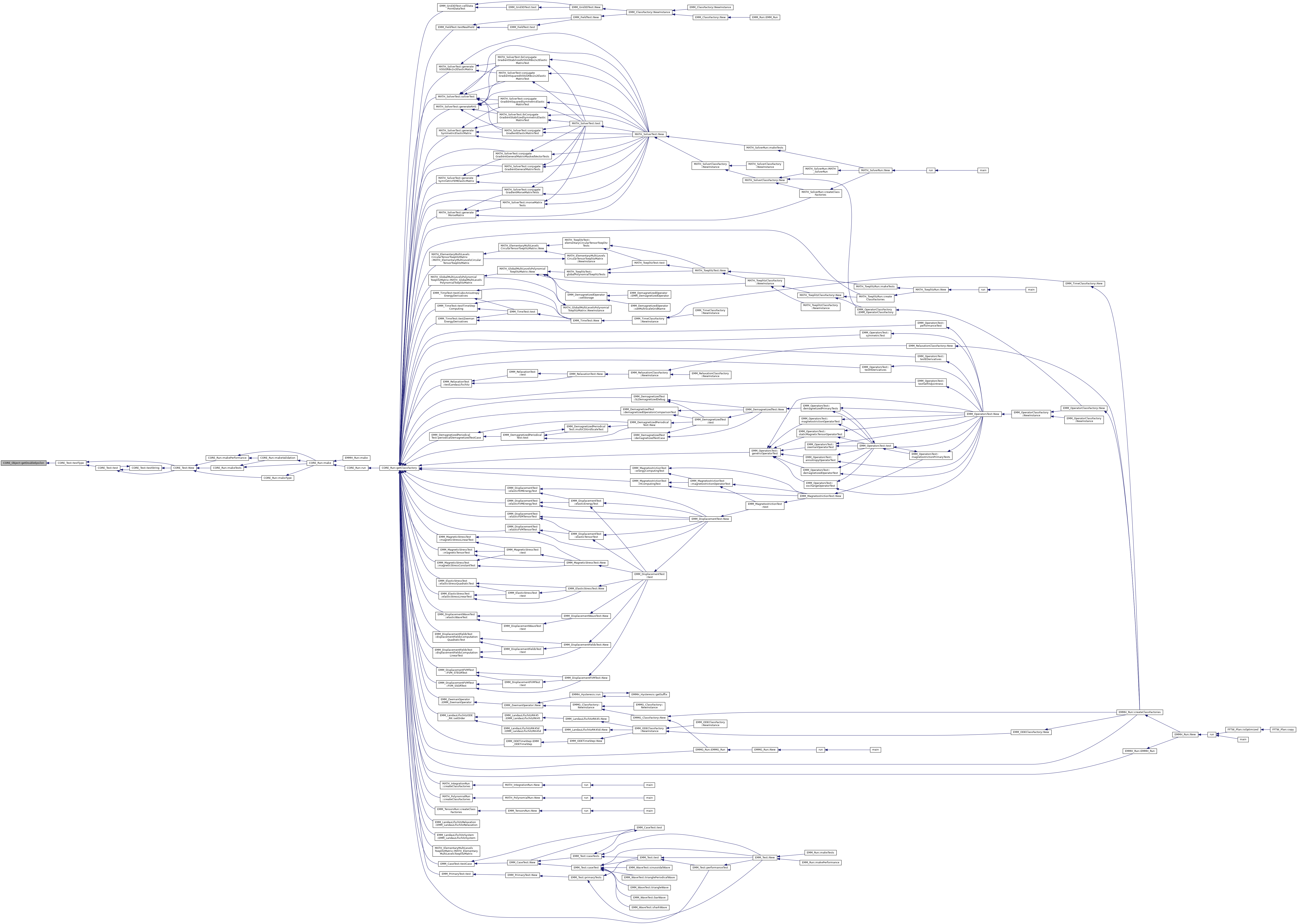
◆ getDoubleInfinity()
|
inlinestaticinherited |
get the infinity value for tFloat type
- Returns
- the intinity value for tFloat type
◆ getDt() [1/2]
|
inlineinherited |
get the time step
- Returns
- the time step
References EMM_Stepper::mDt.
Referenced by EMM_IterativeTimeStep::computeInitialTimeStep(), and EMM_RegularTimeStep::computeNewTimeStep().

◆ getDt() [2/2]
|
inlineinherited |
◆ getDtFactor()
|
inlineinherited |
◆ getEpsilon()
|
inlinestaticinherited |
get the epsilon value for T type
- Returns
- the epsilon value for T type
◆ getFloatEpsilon()
|
inlinestaticinherited |
get the epsilon value for tFloat type
- Returns
- the epsilon value for tFloat type
Referenced by CORE_Test::testType().
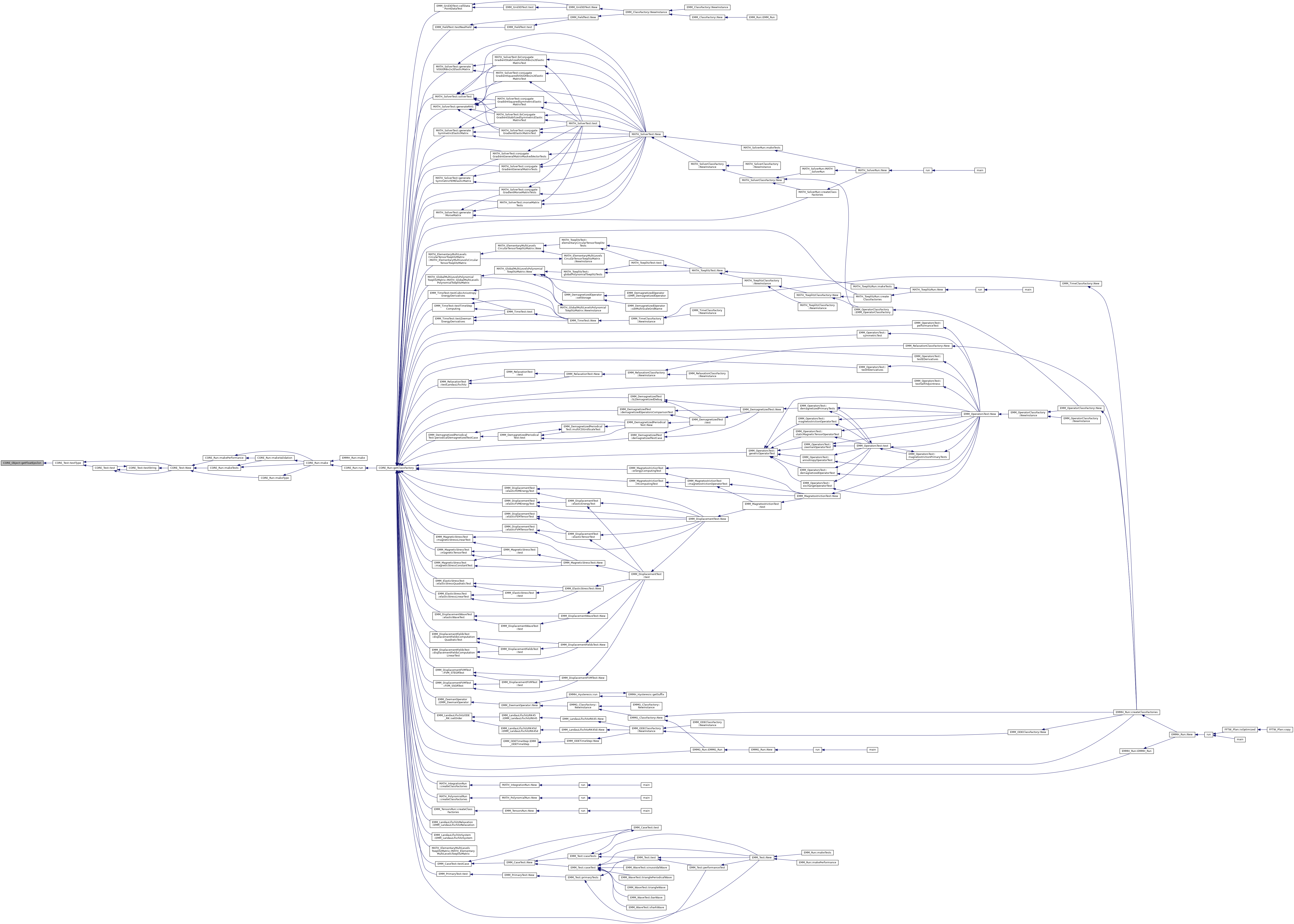
◆ getFloatInfinity()
|
inlinestaticinherited |
get the infinity value for tFloat type
- Returns
- the intinity value for tFloat type
◆ getIdentityString()
|
inlineinherited |
return the identity string of the object of the form className_at_address
- Returns
- the identity string of the object
References CORE_Object::getClassName(), CORE_Object::pointer2String(), and tString.
Referenced by MATH_GaussLegendreIntegration::copy(), EMM_MultiScaleGrid::initialize(), CORE_Object::isInstanceOf(), CORE_Object::printObjectsInMemory(), MATH_Matrix::toString(), EMMG_SLPeriodicMultiScale::toString(), EMM_Stepper::toString(), EMM_AnisotropyDirectionsField::toString(), EMM_BlockMassMatrix::toString(), CORE_Object::toString(), EMM_Tensors::toString(), EMM_MultiScaleGrid::toString(), EMM_MatterField::toString(), EMM_Grid3D::toString(), and EMM_LandauLifschitzSystem::toString().

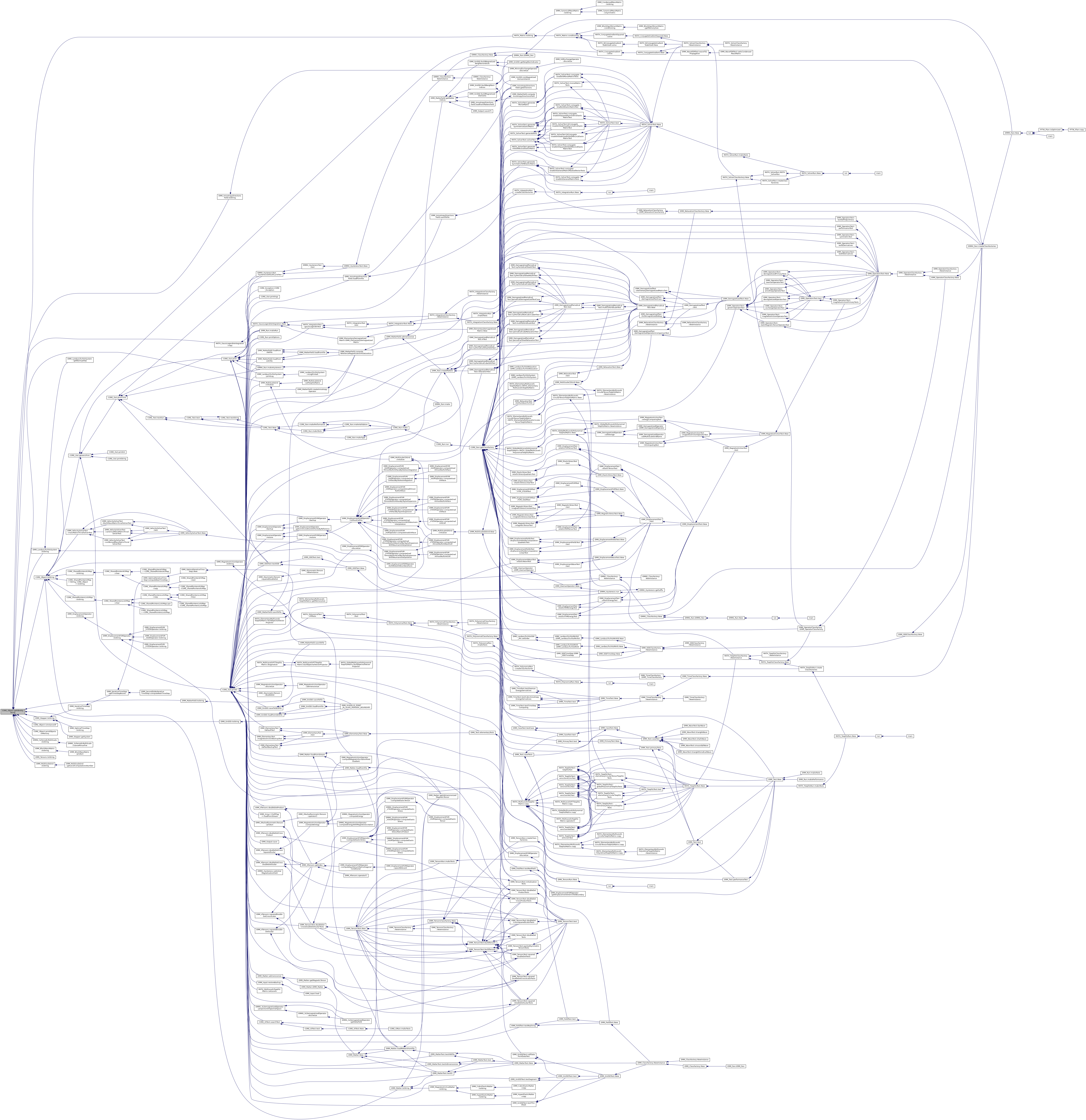
◆ getInfinity()
|
inlinestaticinherited |
get the infinity for T type
- Returns
- the infinity value for T type
◆ getInitialTimeType()
|
inlineinherited |
get the initial type type
- Returns
- the intitial time type
References EMM_IterativeTimeStep::mInitialTimeType.
◆ getIntegrationOrder()
|
inlineinherited |
get integration order
- Returns
- the integration ordr in 1|2
References EMM_IterativeTimeStep::mOrder.
Referenced by EMM_SecondOrderIterativeTimeStep::computeTimeFunctionDerivatives().

◆ getLDoubleEpsilon()
|
inlinestaticinherited |
get the epsilon value for tLDouble type
- Returns
- the epsilon value for tLDouble type
Referenced by CORE_Test::testType().

◆ getLDoubleInfinity()
|
inlinestaticinherited |
get the infinity value for tDouble type
- Returns
- the infinity value for tDouble type
◆ getMaxChar()
|
inlinestaticinherited |
get the max value for tChar type
- Returns
- the max value for tChar type
Referenced by CORE_Test::testType().

◆ getMaxDouble()
|
inlinestaticinherited |
get the max value for tDouble type
- Returns
- the max value for tDouble type
Referenced by CORE_Test::testType().
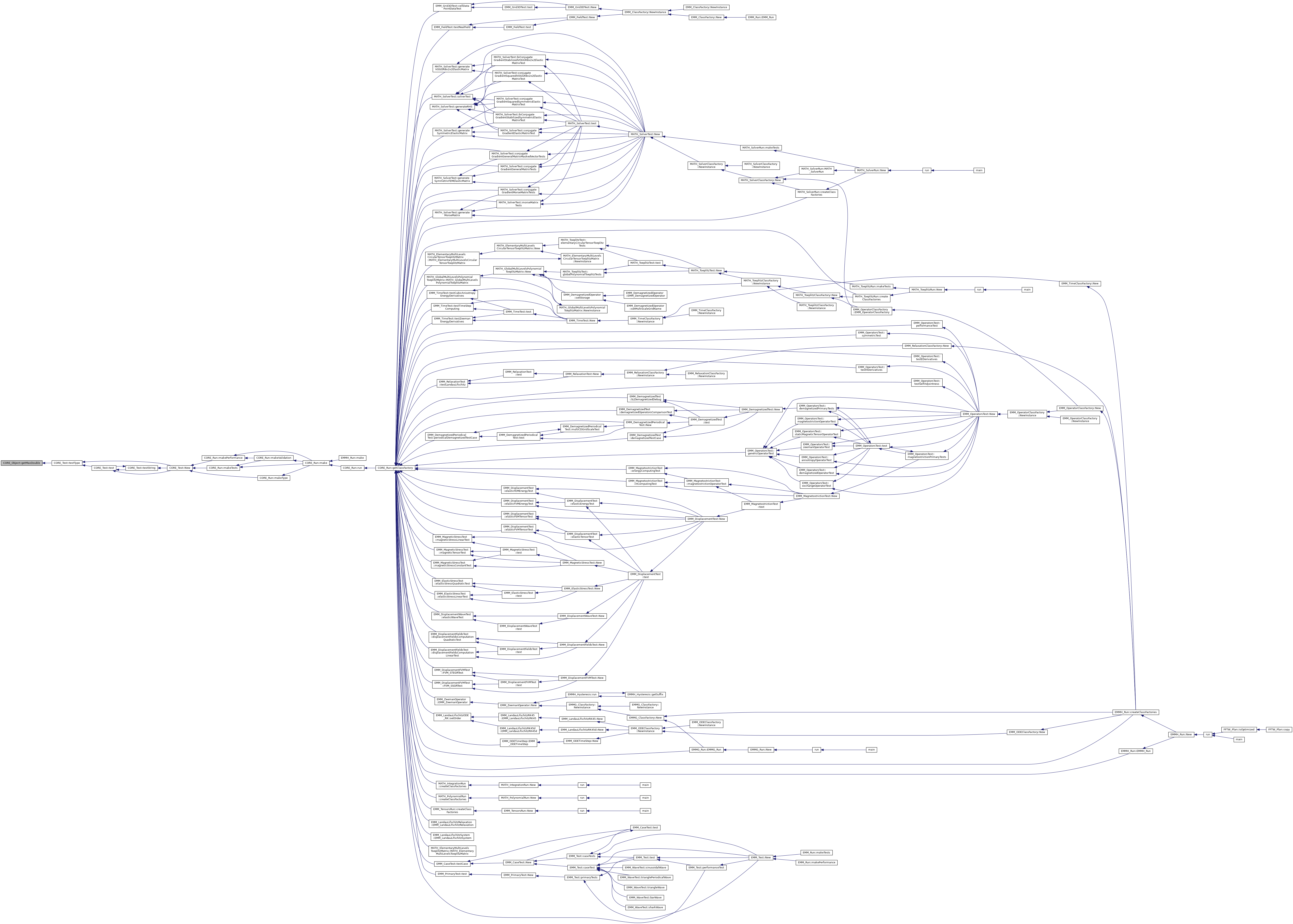
◆ getMaxFlag()
|
inlinestaticinherited |
get the max value for the tFlag type
- Returns
- the max value for the tFlag type
Referenced by CORE_Test::testType().

◆ getMaxFloat()
|
inlinestaticinherited |
get the max value for tFloat type
- Returns
- the max value for tFloat type
Referenced by CORE_Test::testType().
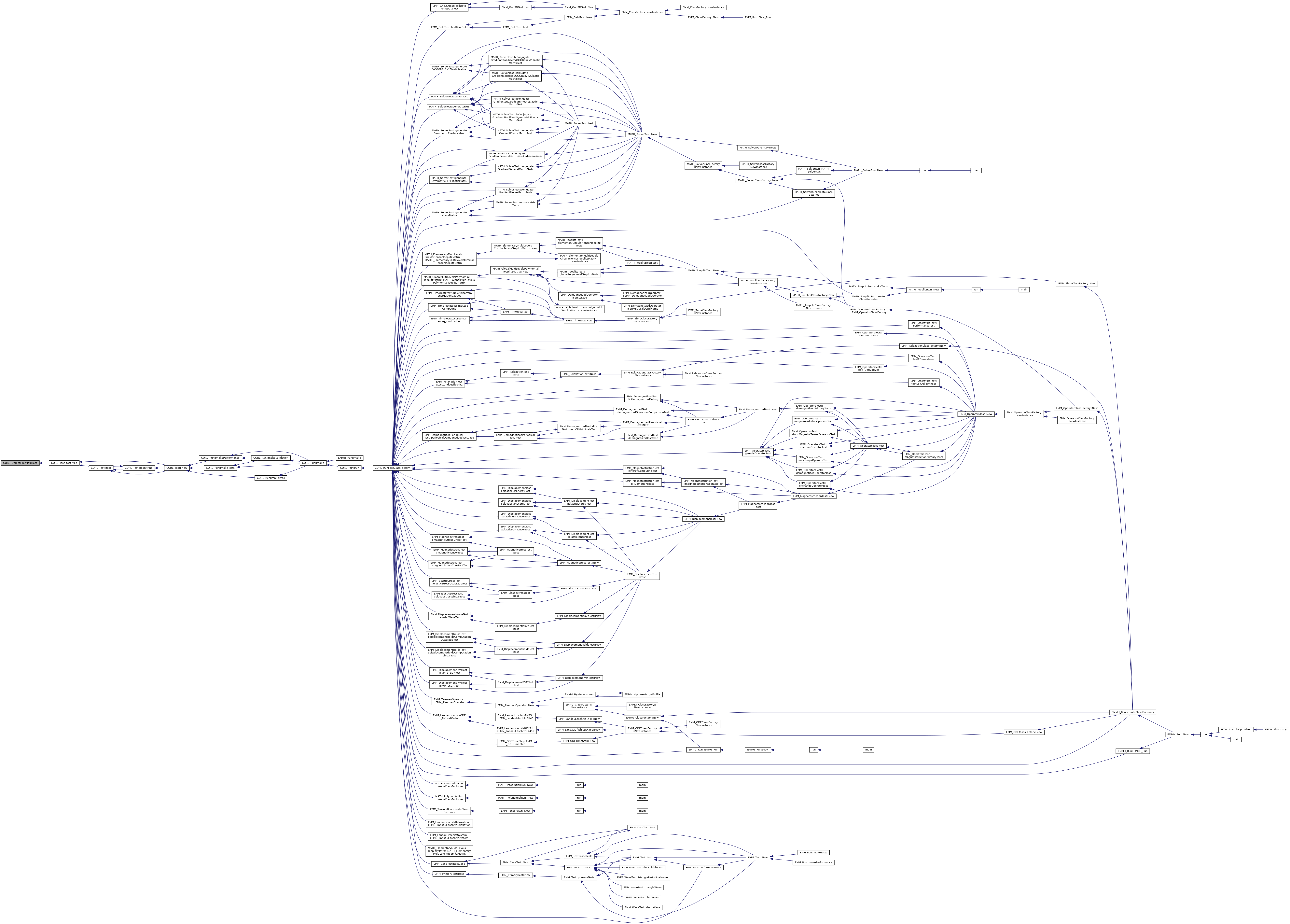
◆ getMaximumEvaluationsNumber()
|
inlineinherited |
get the max evalution of Energy for finding the best dt for which the variation of energy is <0
- Returns
- the max loops number
References EMM_IterativeTimeStep::mMaxEvaluationsNumber.
Referenced by EMM_QuasiNewtonIterativeTimeStep::optimizeTimeFunction(), EMM_QuadraticNumberIterativeTimeStep::optimizeTimeFunction(), and EMM_GoldenNumberIterativeTimeStep::optimizeTimeFunction().

◆ getMaximumTimeStepGap()
|
inlineinherited |
get the maximum time step gap
- Returns
- the maximum time step gap
References EMM_IterativeTimeStep::mMaxTimeStepGap.
◆ getMaxIndex()
|
inlinestaticinherited |
get the max value for the array/vector indexing type
- Returns
- the max value for the array/vector indexing type
Referenced by CORE_Test::testType().
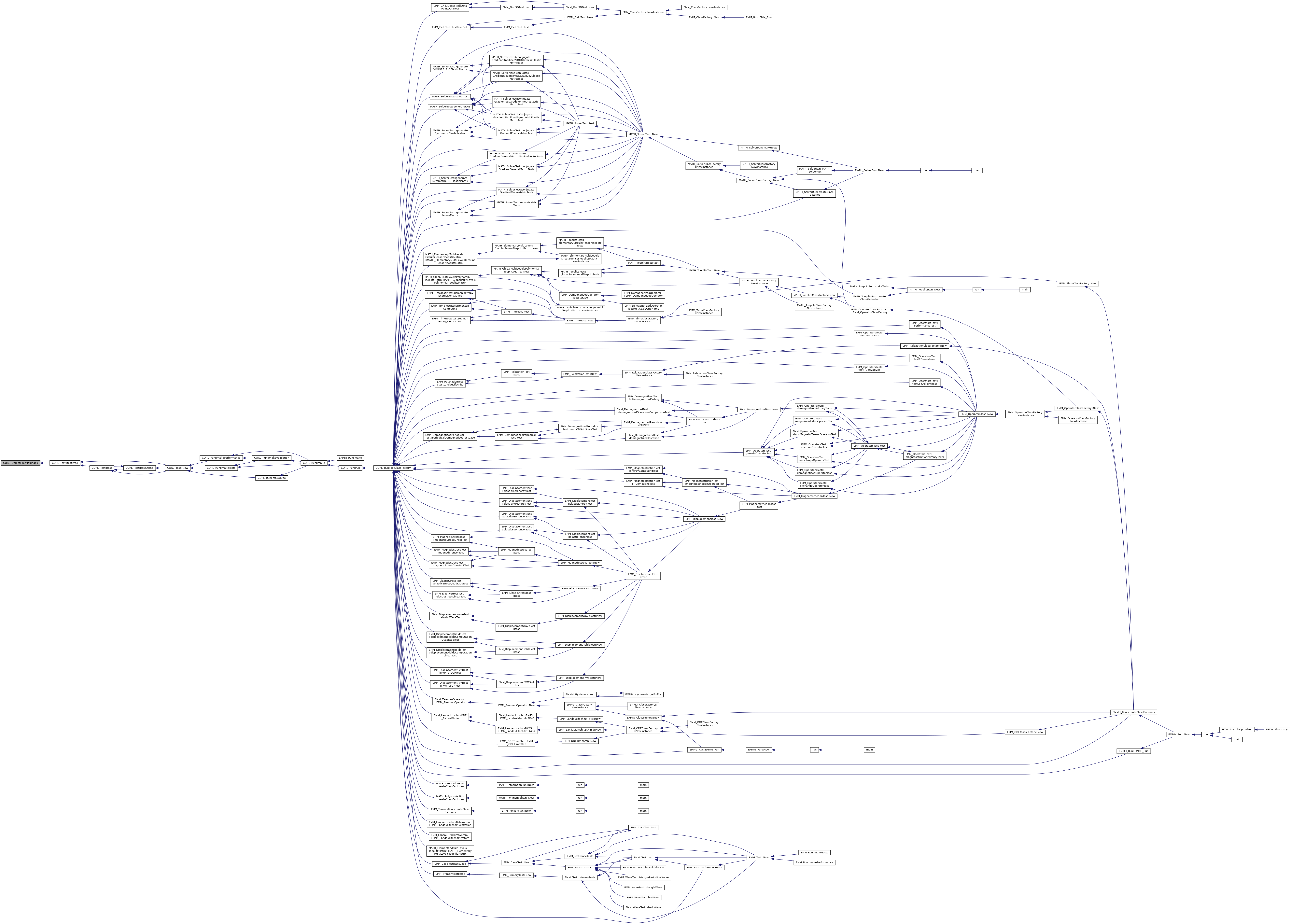
◆ getMaxInt()
|
inlinestaticinherited |
get the max value for tInt type
- Returns
- the max value for tInt type
Referenced by MATSGN_FFT::fastFourierTransform3D_FFTW(), and CORE_Test::testType().

◆ getMaxInteger()
|
inlinestaticinherited |
get the max value for the integer type
- Returns
- the max value for the integer type
Referenced by CORE_Test::testType().
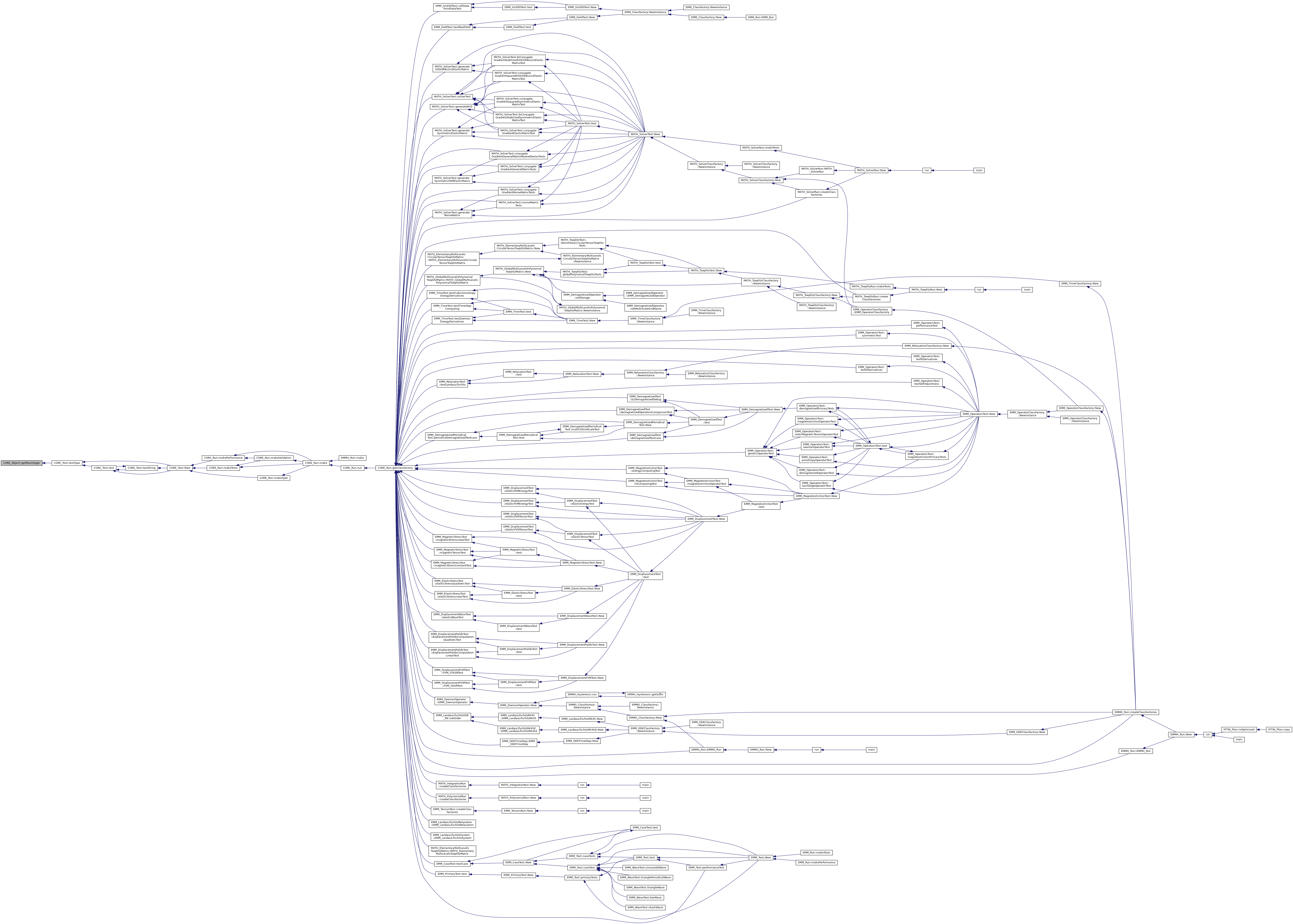
◆ getMaxLDouble()
|
inlinestaticinherited |
get the max value for tLDouble type
- Returns
- the max value for tLDouble type
Referenced by CORE_Test::testType().
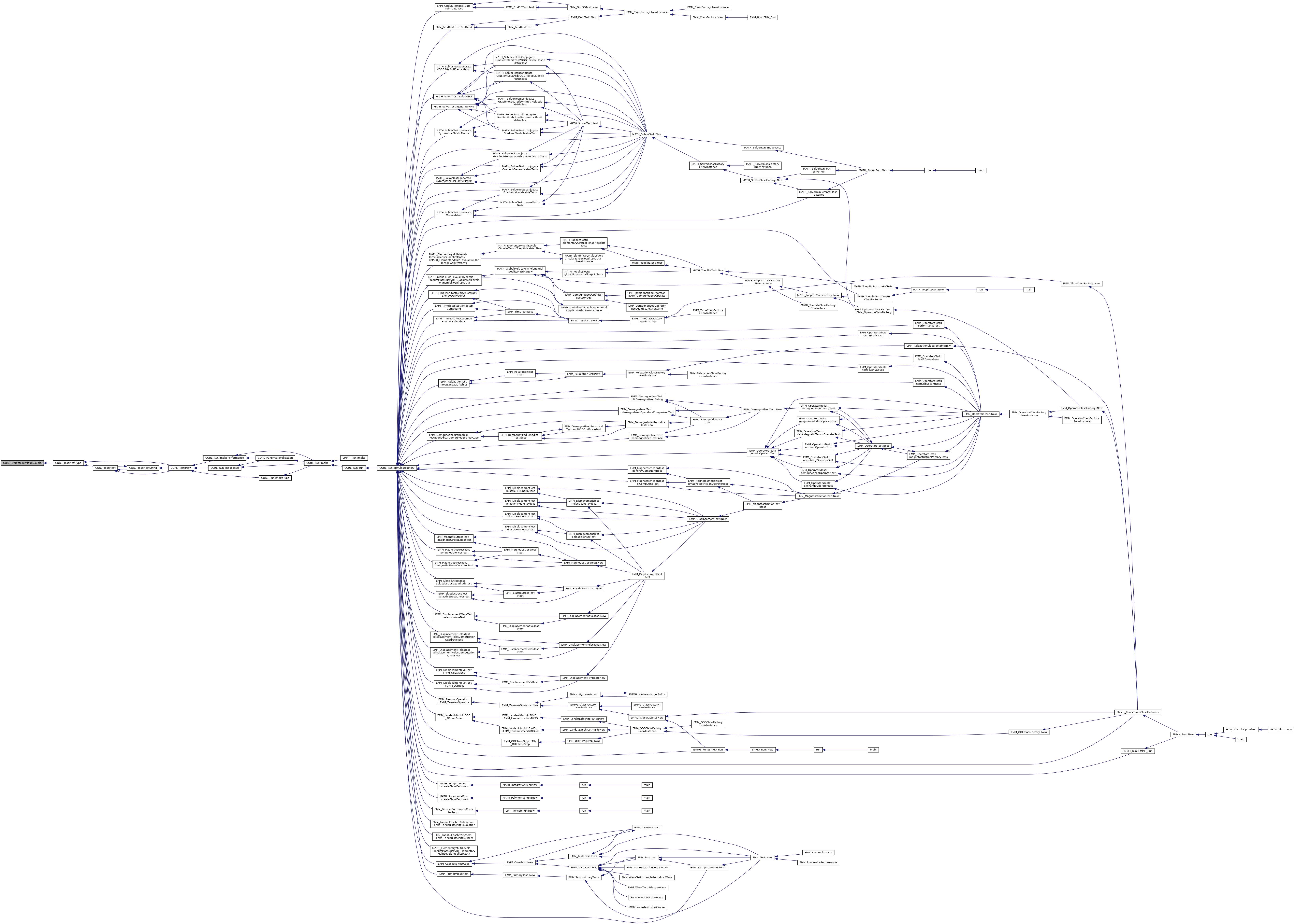
◆ getMaxLInt()
|
inlinestaticinherited |
get the max value for tLInt type
- Returns
- the max value for tLInt type
Referenced by CORE_Test::testType().

◆ getMaxLLInt()
|
inlinestaticinherited |
get the max value for tULInt type
- Returns
- the max value for tULInt type
Referenced by CORE_Test::testType().
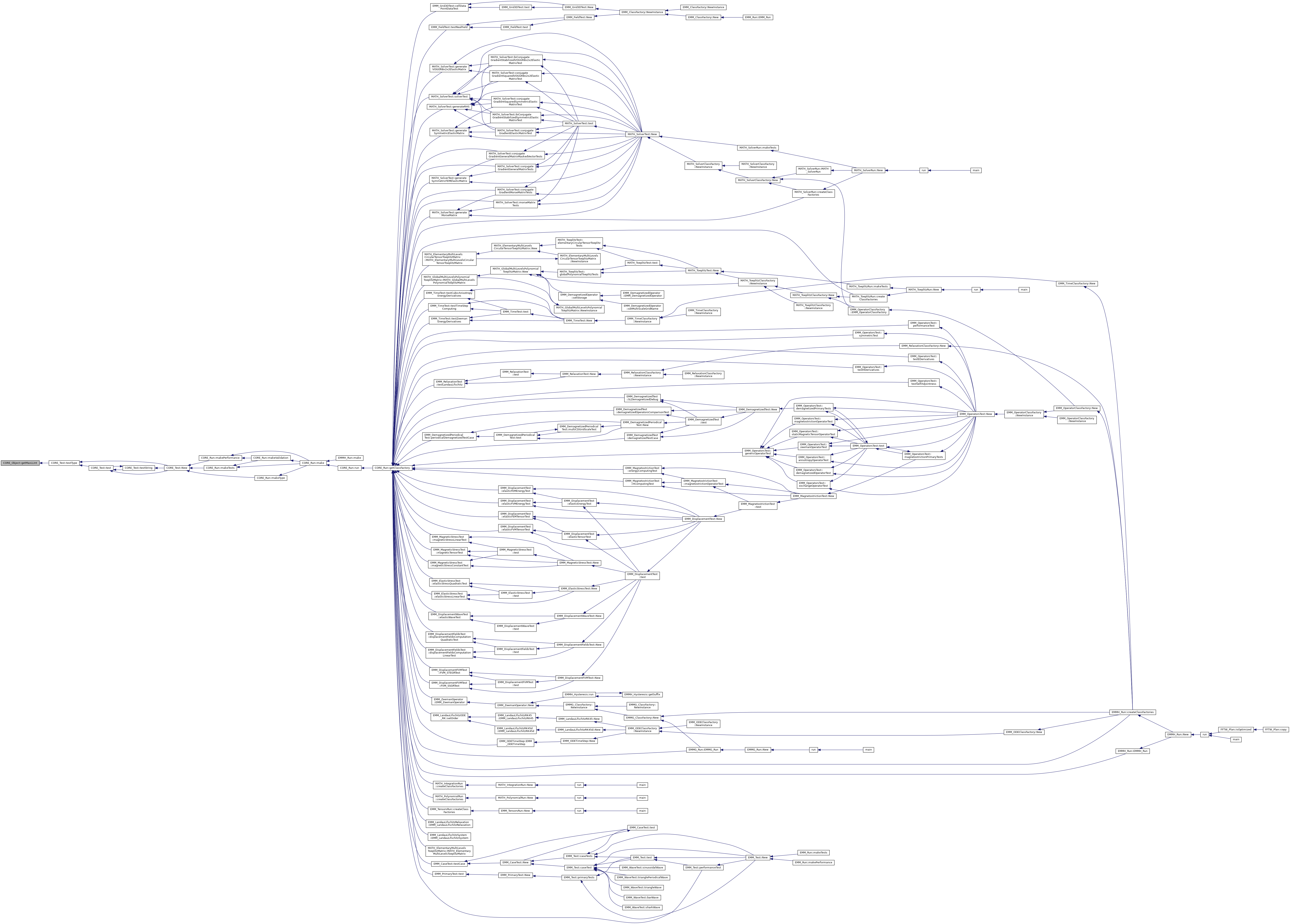
◆ getMaxReal()
|
inlinestaticinherited |
get the max value for the real type
- Returns
- he max value for the real type
Referenced by EMM_MatterField::adimensionize(), and CORE_Test::testType().

◆ getMaxSInt()
|
inlinestaticinherited |
get the max value for tSInt type
- Returns
- the max value for tSInt type
Referenced by CORE_Test::testType().
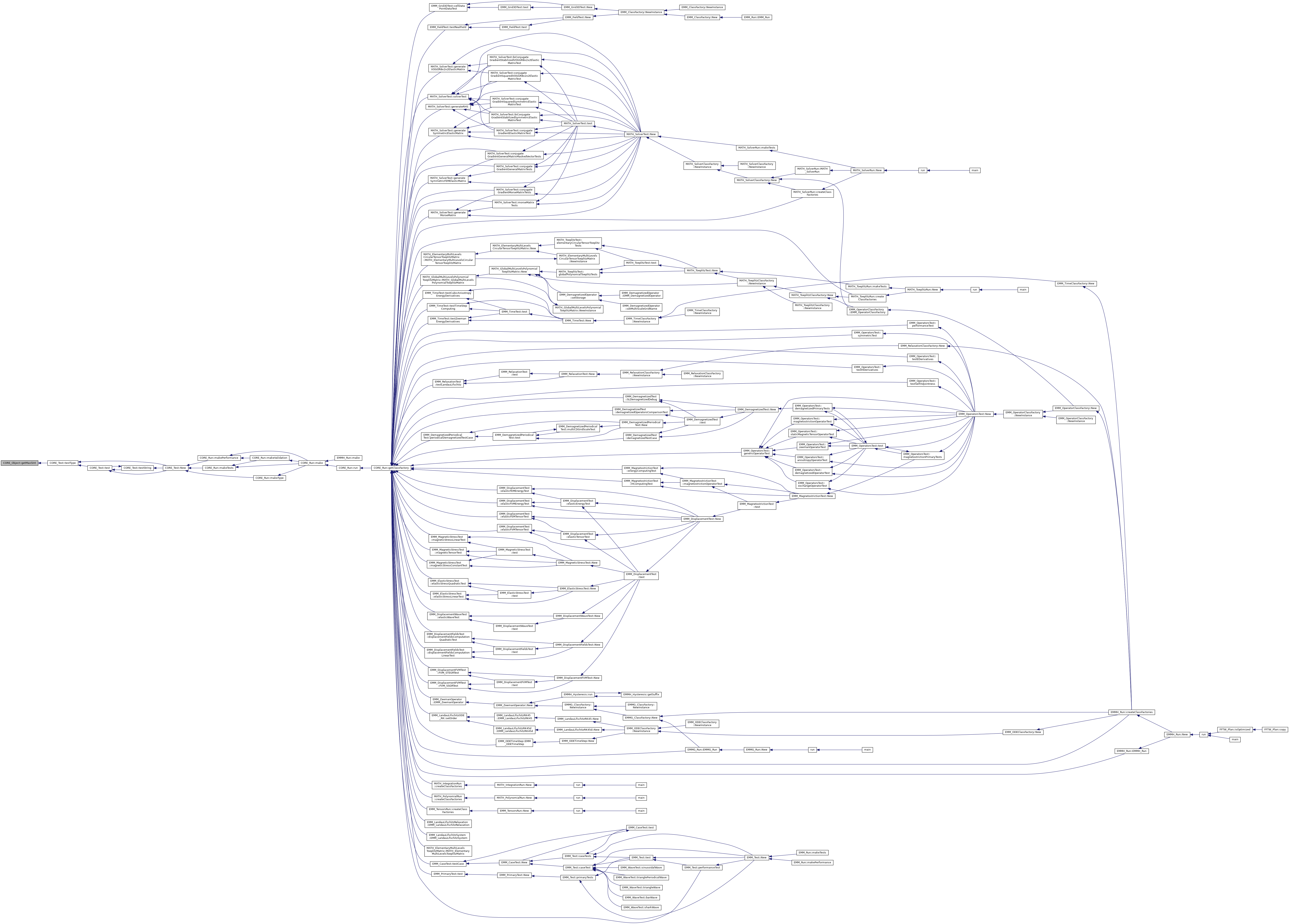
◆ getMaxUChar()
|
inlinestaticinherited |
get the max value for tUChar type
- Returns
- the max value for tUChar type
Referenced by CORE_Test::testType().
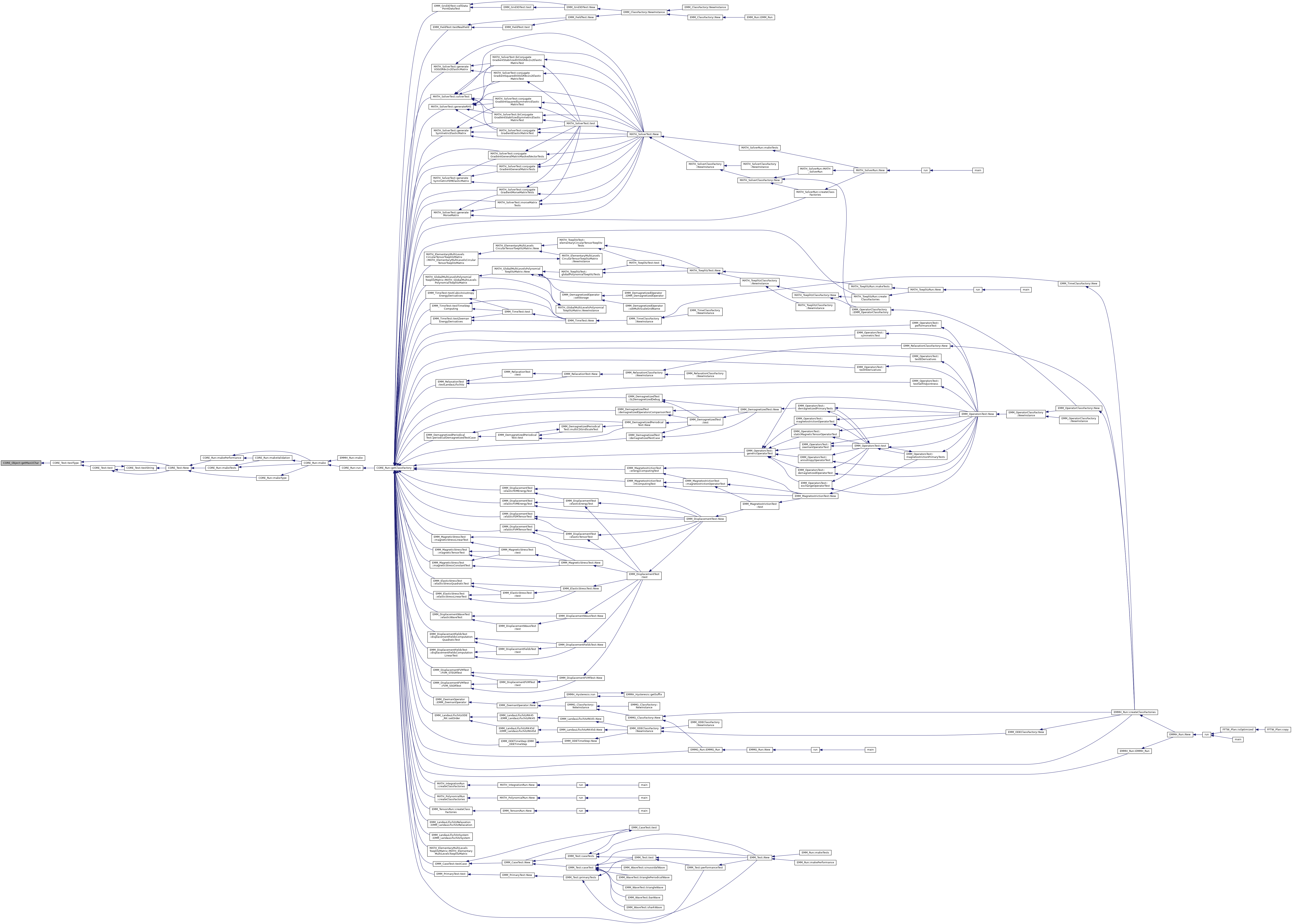
◆ getMaxUIndex()
|
inlinestaticinherited |
get the max value for difference the array/vector indexing type
- Returns
- the max value for difference the array/vector indexing type
Referenced by CORE_Vector< T >::addAfterIndices(), CORE_Vector< T >::search(), CORE_Test::testType(), CORE_Integer::toHexString(), and CORE_Integer::toString().

◆ getMaxUInt()
|
inlinestaticinherited |
get the max value for tUInt type
- Returns
- the max value for tUInt type
Referenced by EMM_Array< tCellFlag >::loadFromFile(), EMM_RealField::loadFromFile(), and CORE_Test::testType().

◆ getMaxUInteger()
|
inlinestaticinherited |
get the max value for the unsigned integer type
- Returns
- the max value for the unsigned integer type
Referenced by MATH_Pn::computeExtrenums(), EMM_MultiScaleGrid::computeLevelsNumber(), EMM_Input::restoreBackup(), MATH_P0::solve(), and CORE_Test::testType().

◆ getMaxULInt()
|
inlinestaticinherited |
get the max value for tULInt type
- Returns
- the max value for tULInt type
Referenced by CORE_Test::testType().
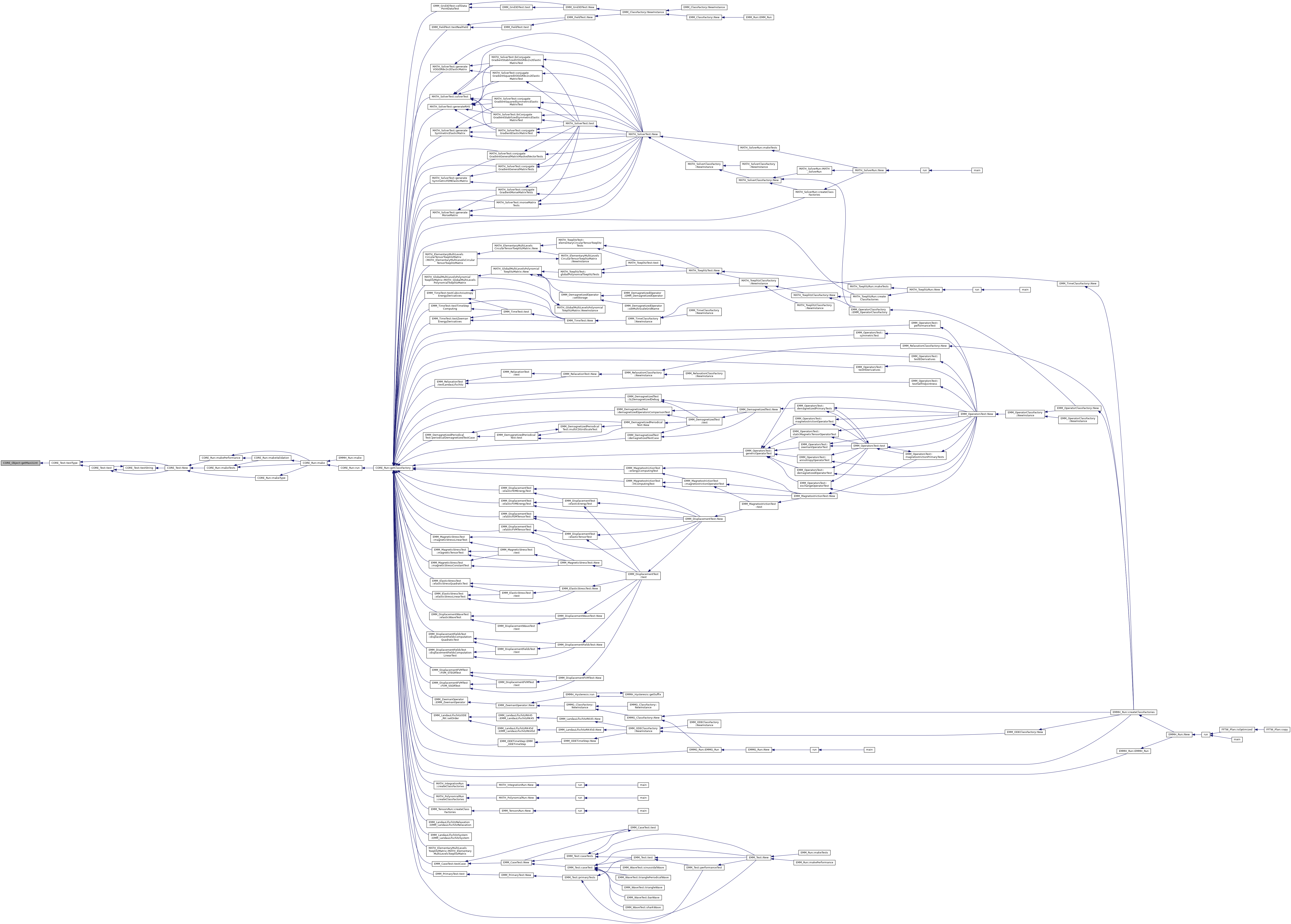
◆ getMaxULLInt()
|
inlinestaticinherited |
get the max value for tULLInt type
- Returns
- the max value for tULLInt type
Referenced by CORE_Test::testType().
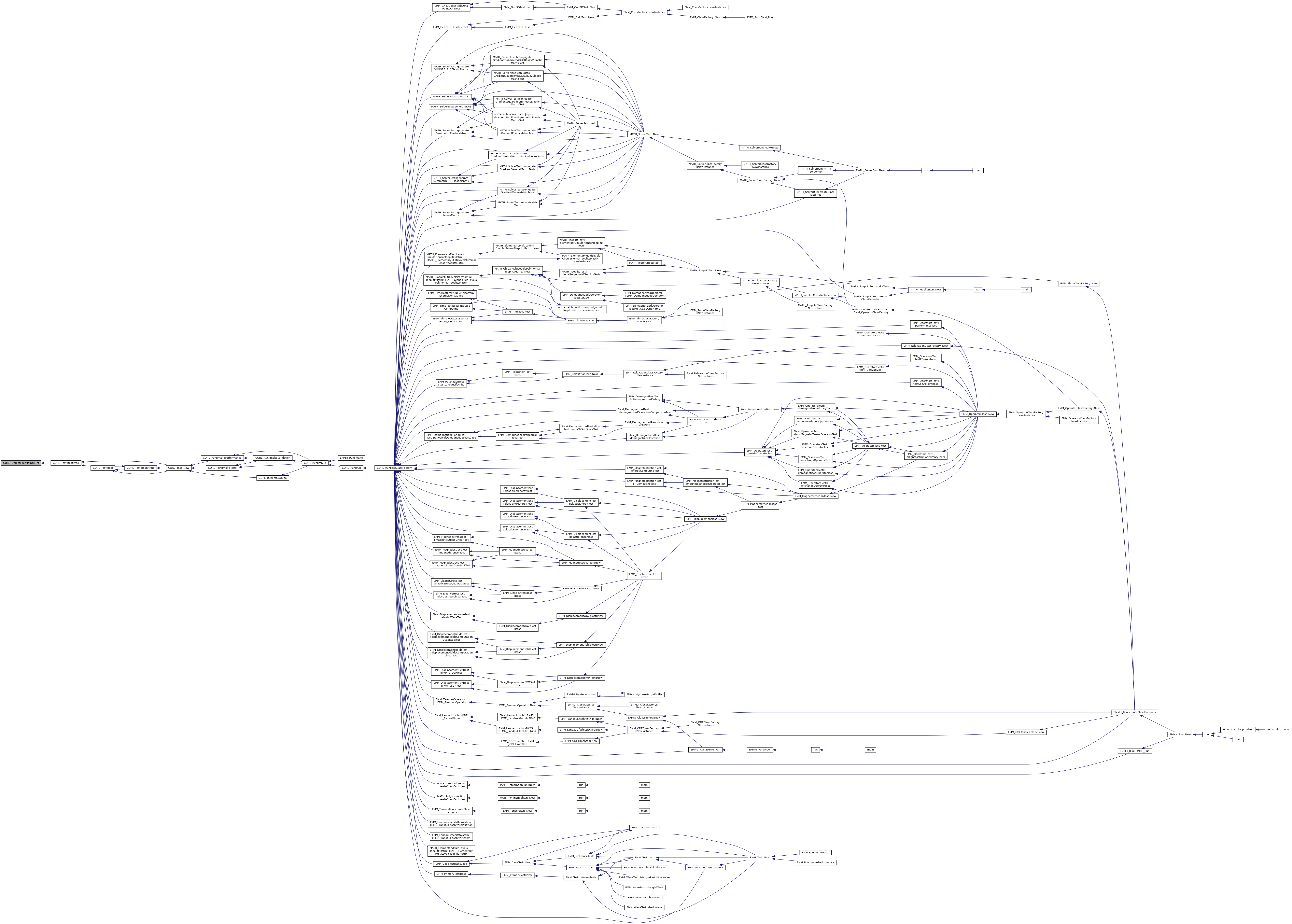
◆ getMaxUSInt()
|
inlinestaticinherited |
get the max value for tUSInt type
- Returns
- the max value for tUSInt type
Referenced by CORE_Test::testType().

◆ getMinChar()
|
inlinestaticinherited |
get the min value for tChar type
- Returns
- the min value for tChar type
Referenced by CORE_Test::testType().
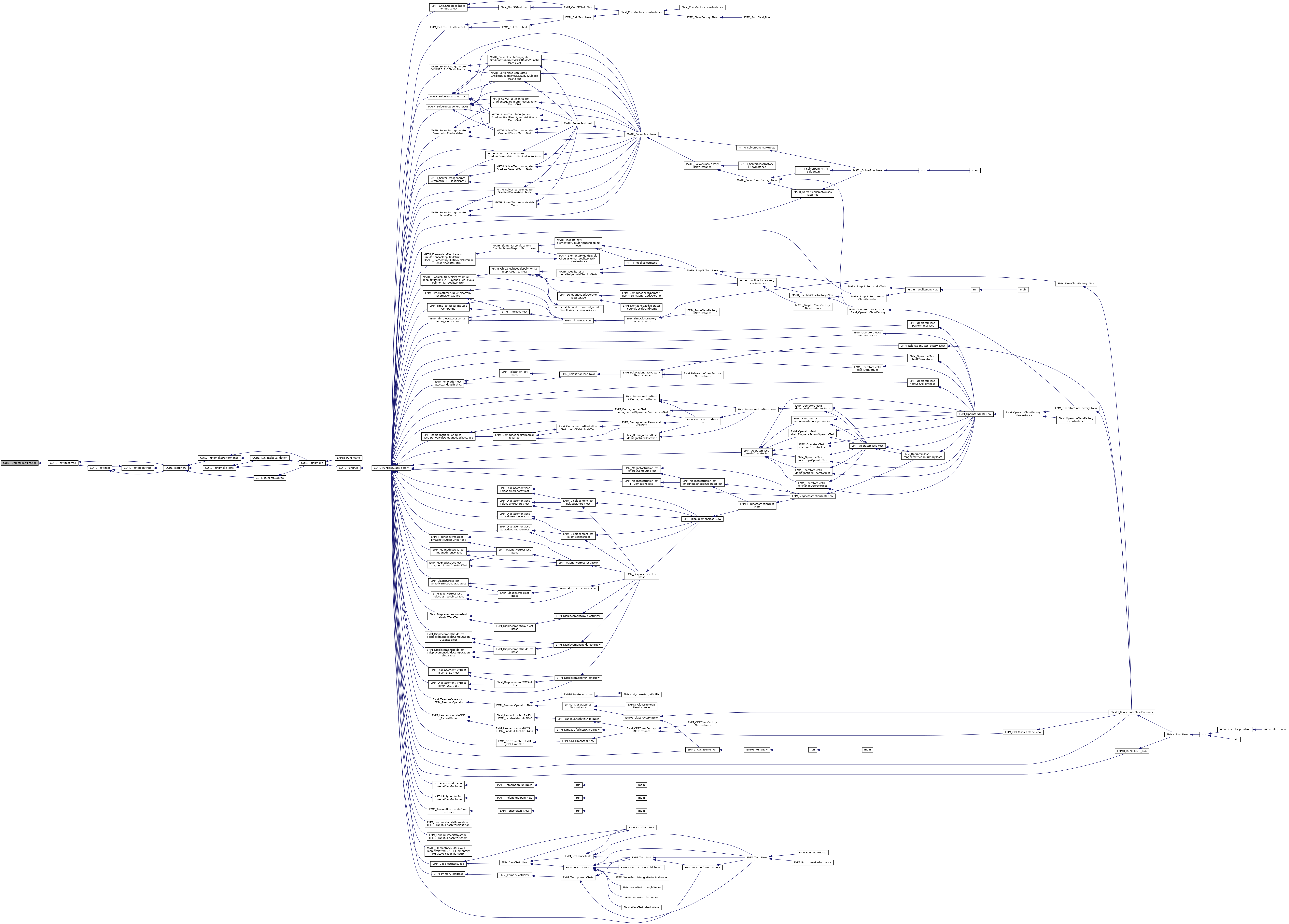
◆ getMinDouble()
|
inlinestaticinherited |
get the min value for tDouble type
- Returns
- the min value for tDouble type
Referenced by CORE_Test::testType().

◆ getMinFlag()
|
inlinestaticinherited |
get the min value for the tFlag type
- Returns
- the min value for the tFlag type
Referenced by CORE_Test::testType().
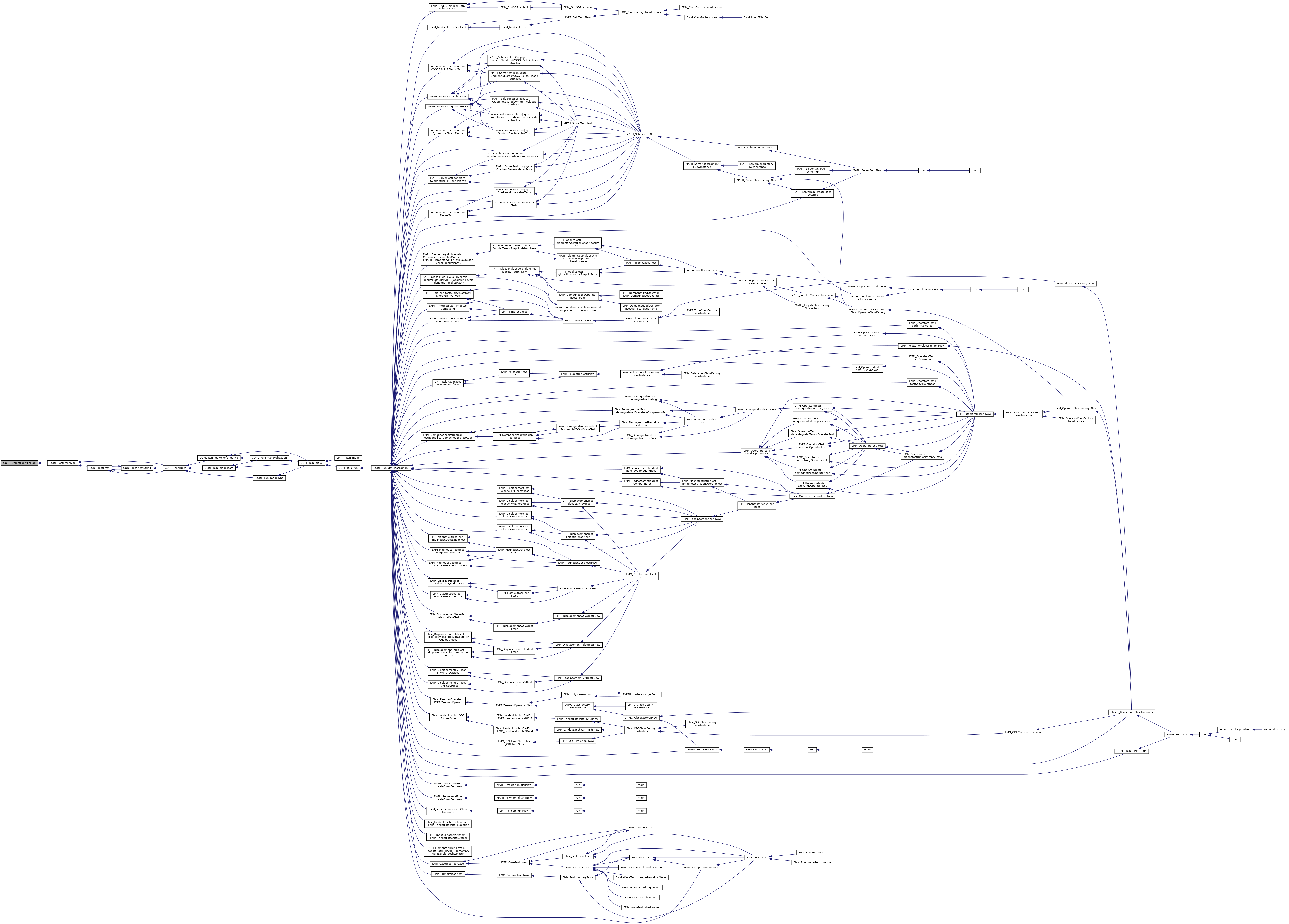
◆ getMinFloat()
|
inlinestaticinherited |
get the min value for tFloat type
- Returns
- the min value for tFloat type
Referenced by CORE_Test::testType().
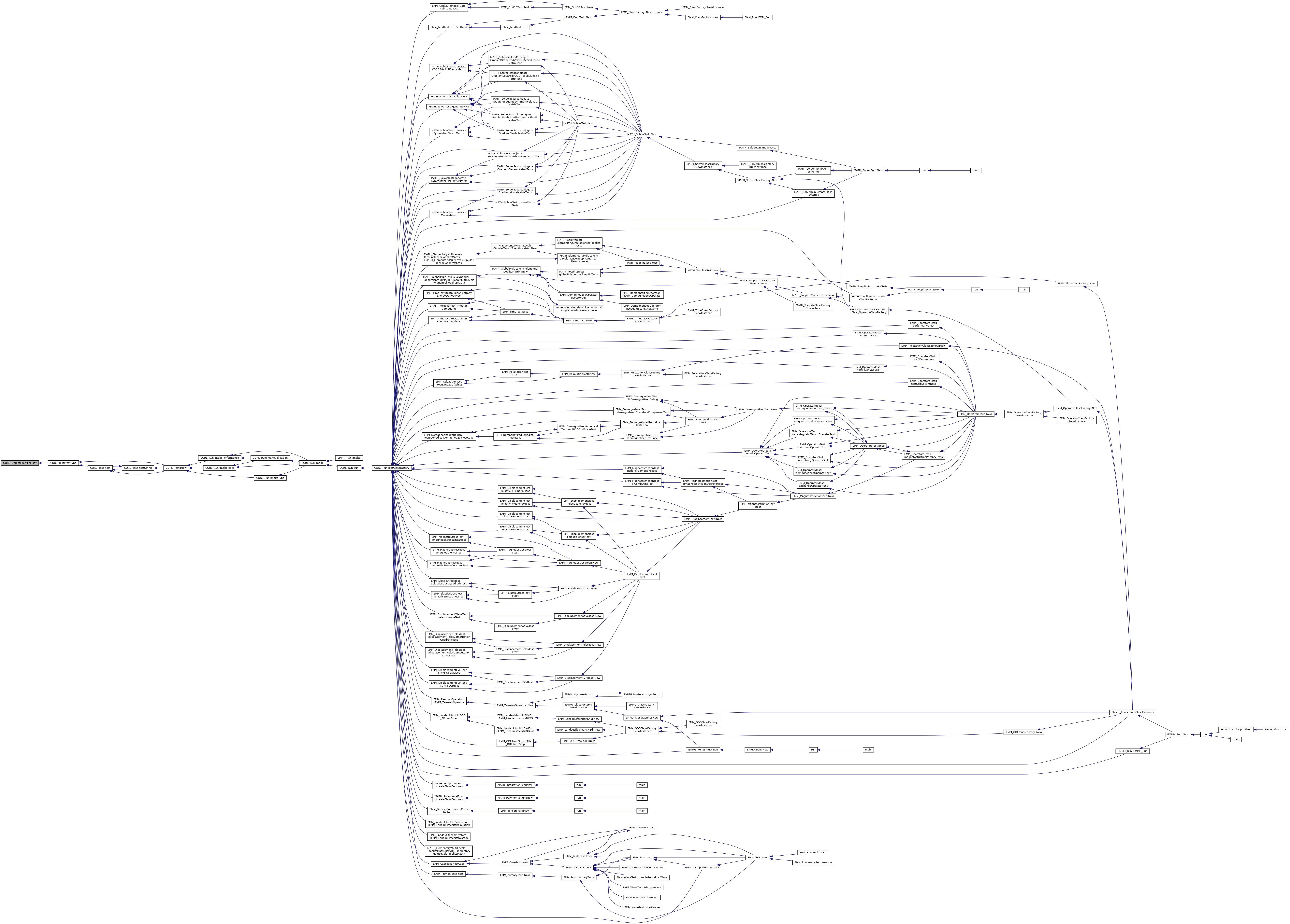
◆ getMinIndex()
|
inlinestaticinherited |
get the min value for the array/vector indexing type
- Returns
- the min value for the array/vector indexing type
Referenced by CORE_Test::testType().
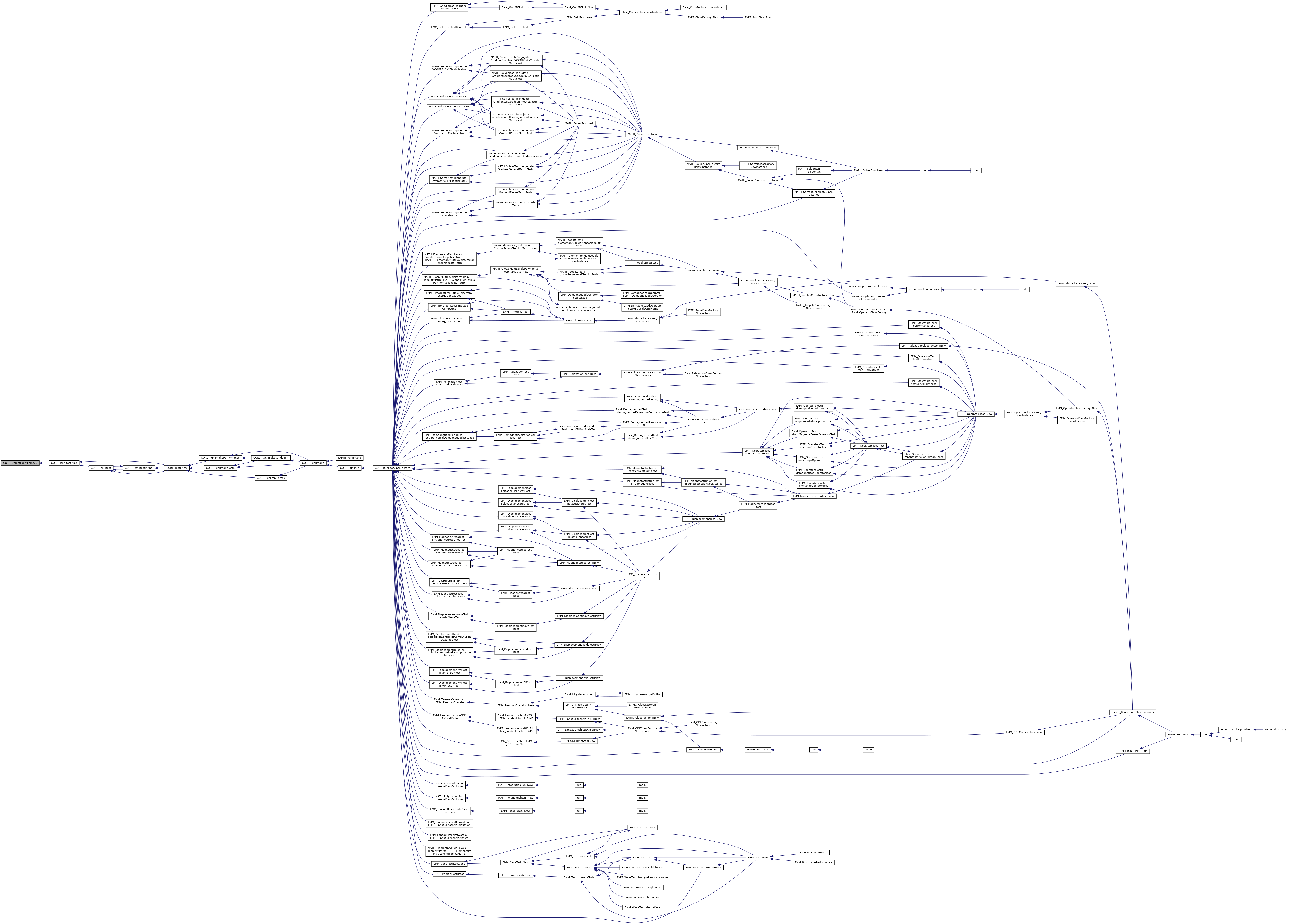
◆ getMinInt()
|
inlinestaticinherited |
get the min value for tInt type
- Returns
- the min value for tInt type
Referenced by CORE_Test::testType().
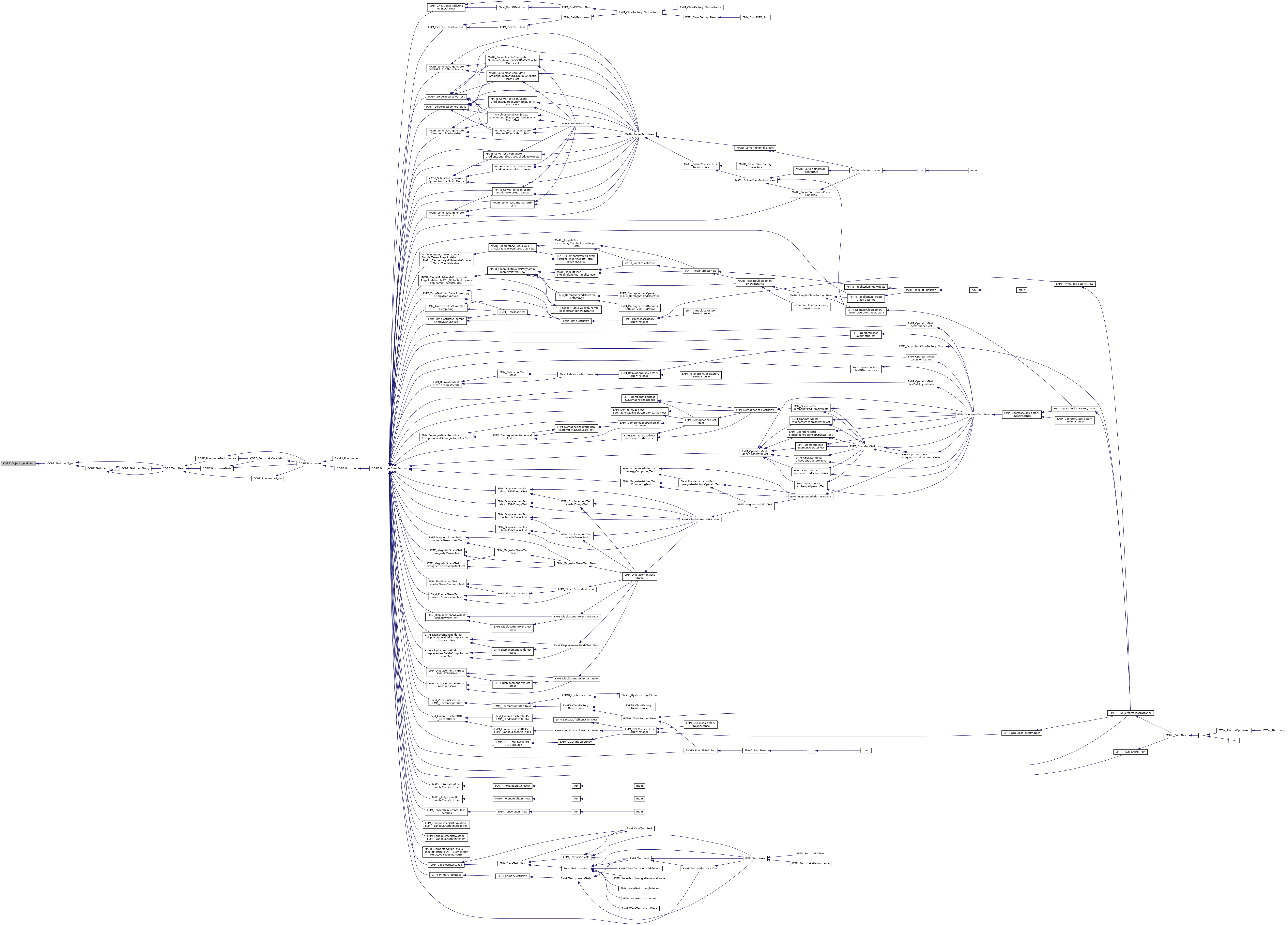
◆ getMinInteger()
|
inlinestaticinherited |
get the min value for the integer type
- Returns
- the minin value for the integer type
Referenced by CORE_Test::testType().

◆ getMinLDouble()
|
inlinestaticinherited |
get the min value for tLDouble type
- Returns
- the min value for tLDouble type
Referenced by CORE_Test::testType().

◆ getMinLInt()
|
inlinestaticinherited |
get the min value for tLInt type
- Returns
- the min value for tLInt type
Referenced by CORE_Test::testType().
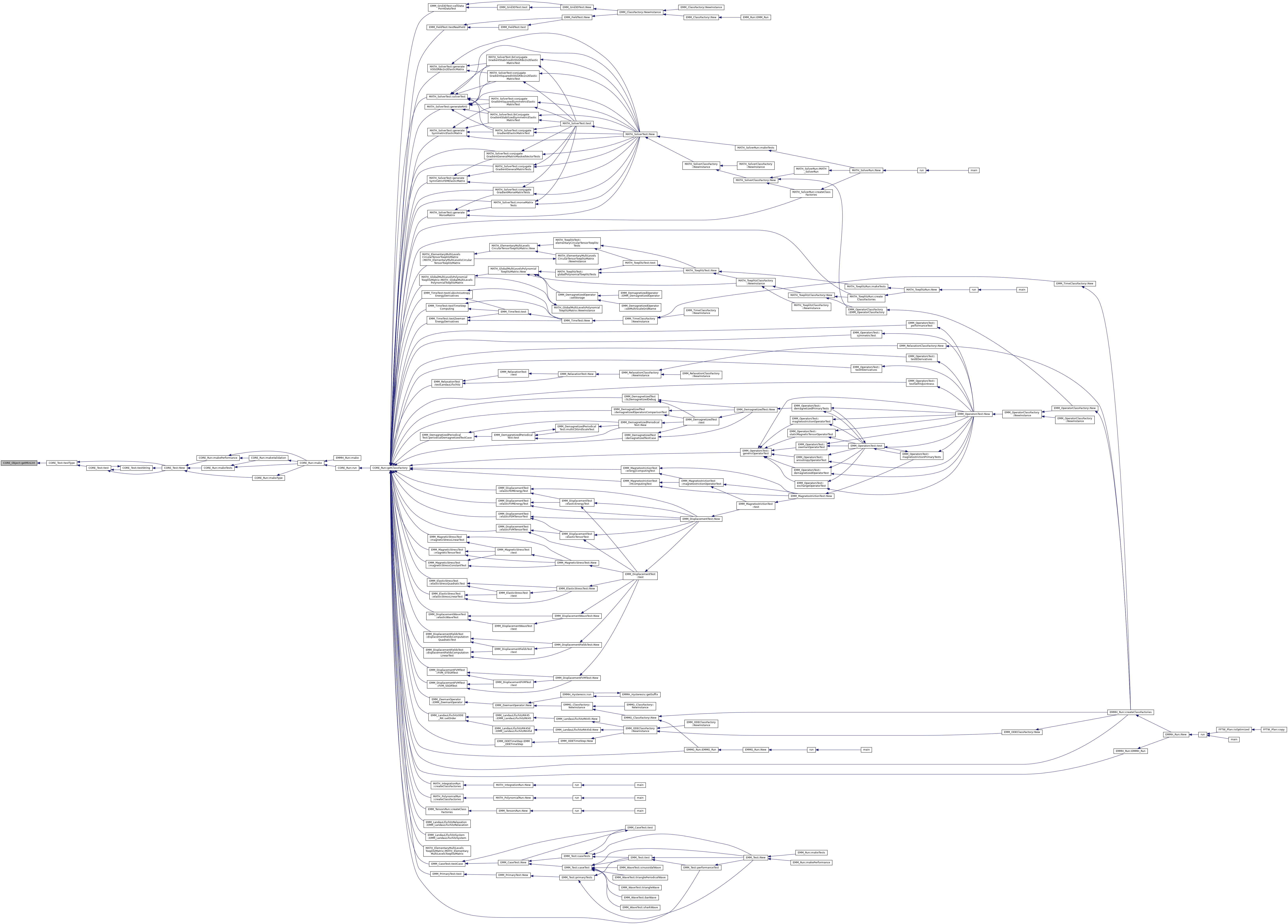
◆ getMinLLInt()
|
inlinestaticinherited |
get the min value for tLLInt type
- Returns
- the min value for tLLInt type
Referenced by CORE_Test::testType().

◆ getMinReal()
|
inlinestaticinherited |
get the min value for the real type
- Returns
- the min value for the real type
Referenced by CORE_Test::testType().
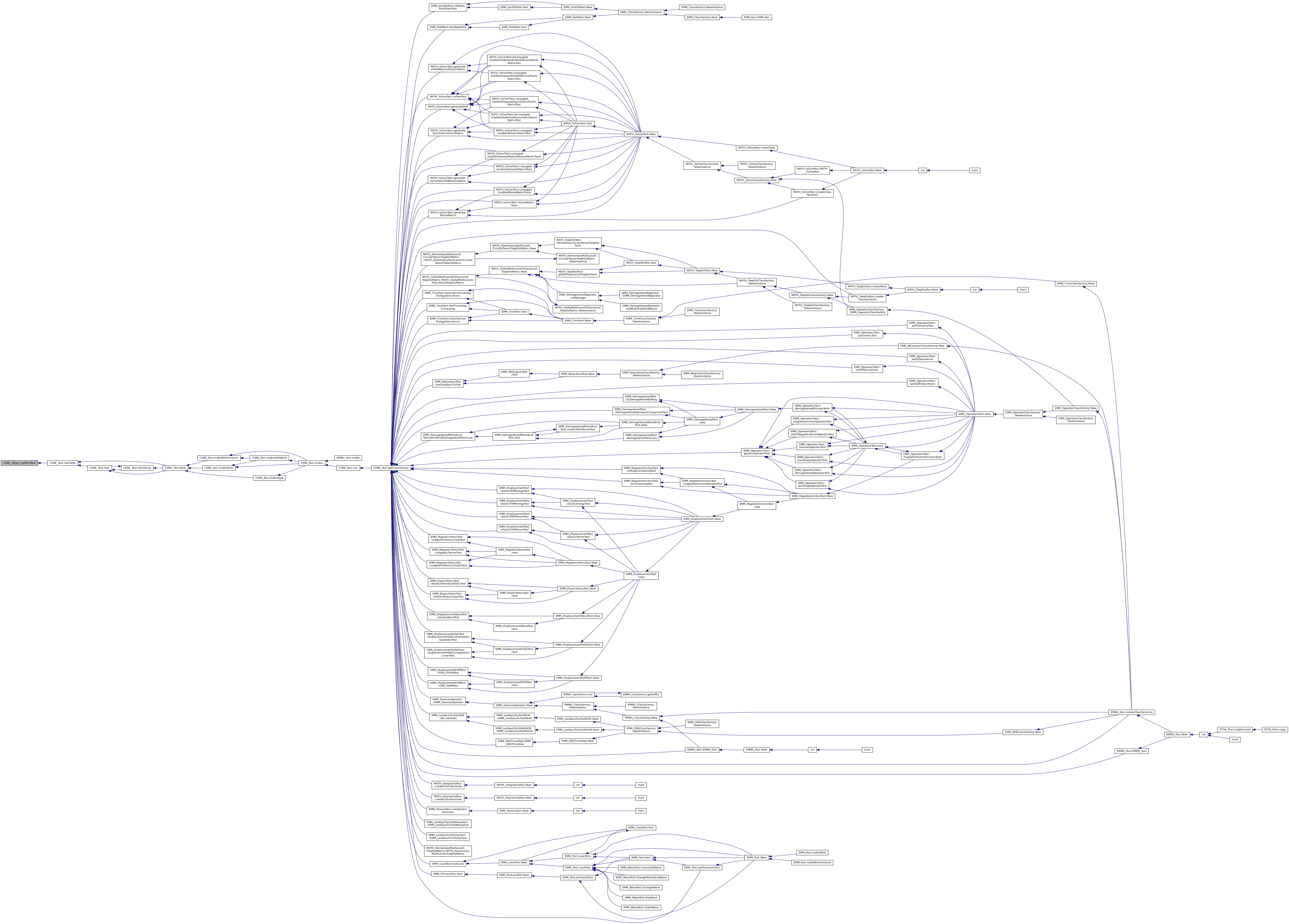
◆ getMinSInt()
|
inlinestaticinherited |
get the min value for tSInt type
- Returns
- the min value for tSInt type
Referenced by CORE_Test::testType().
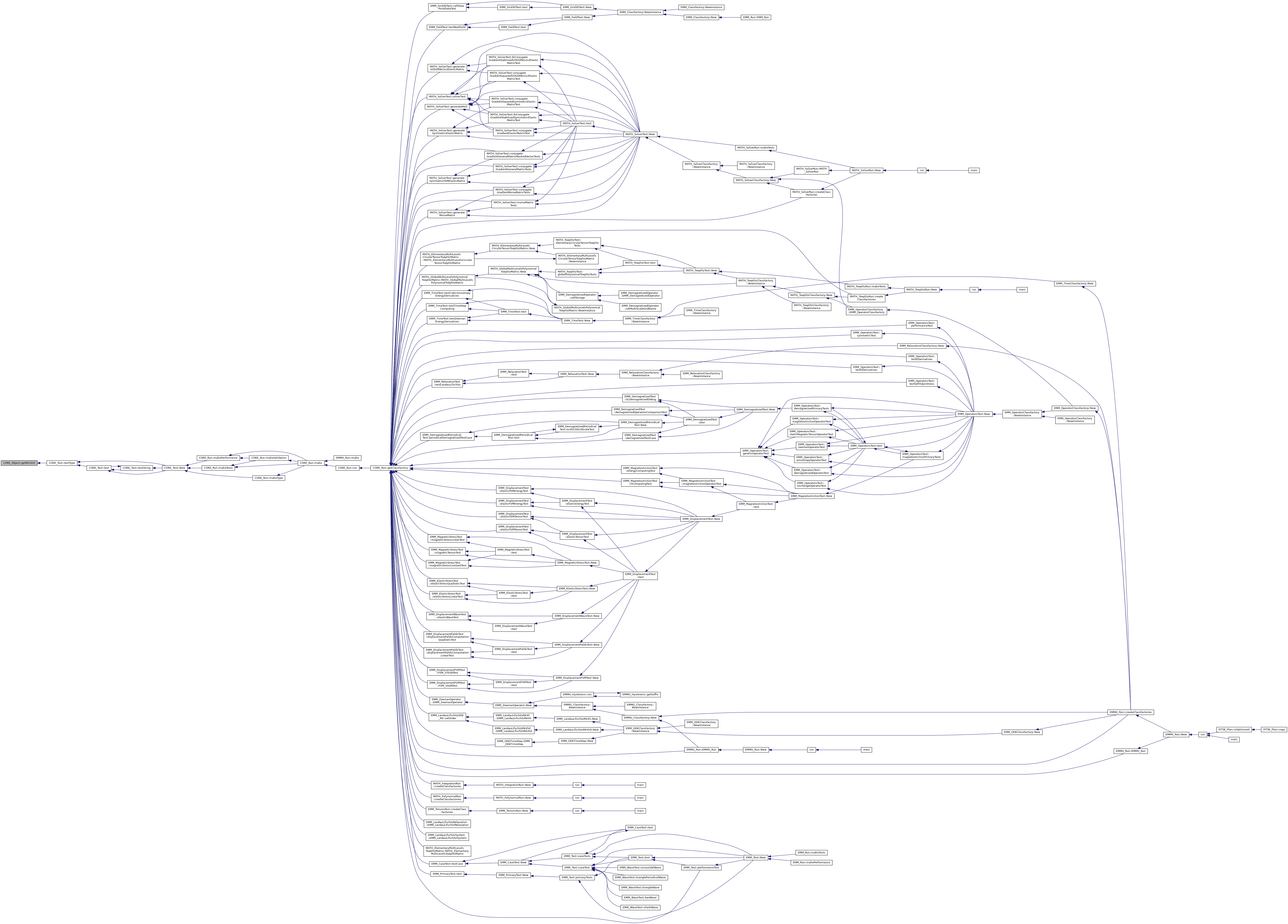
◆ getMinTimeStep()
|
inlineinherited |
get the min time step of iterative time step computing
- Returns
- the min value of the time step under which the computing is stopped
References EMM_IterativeTimeStep::mMinTimeStep.
◆ getMinUChar()
|
inlinestaticinherited |
get the min value for tUChar type
- Returns
- the min value for tUChar type
Referenced by CORE_Test::testType().
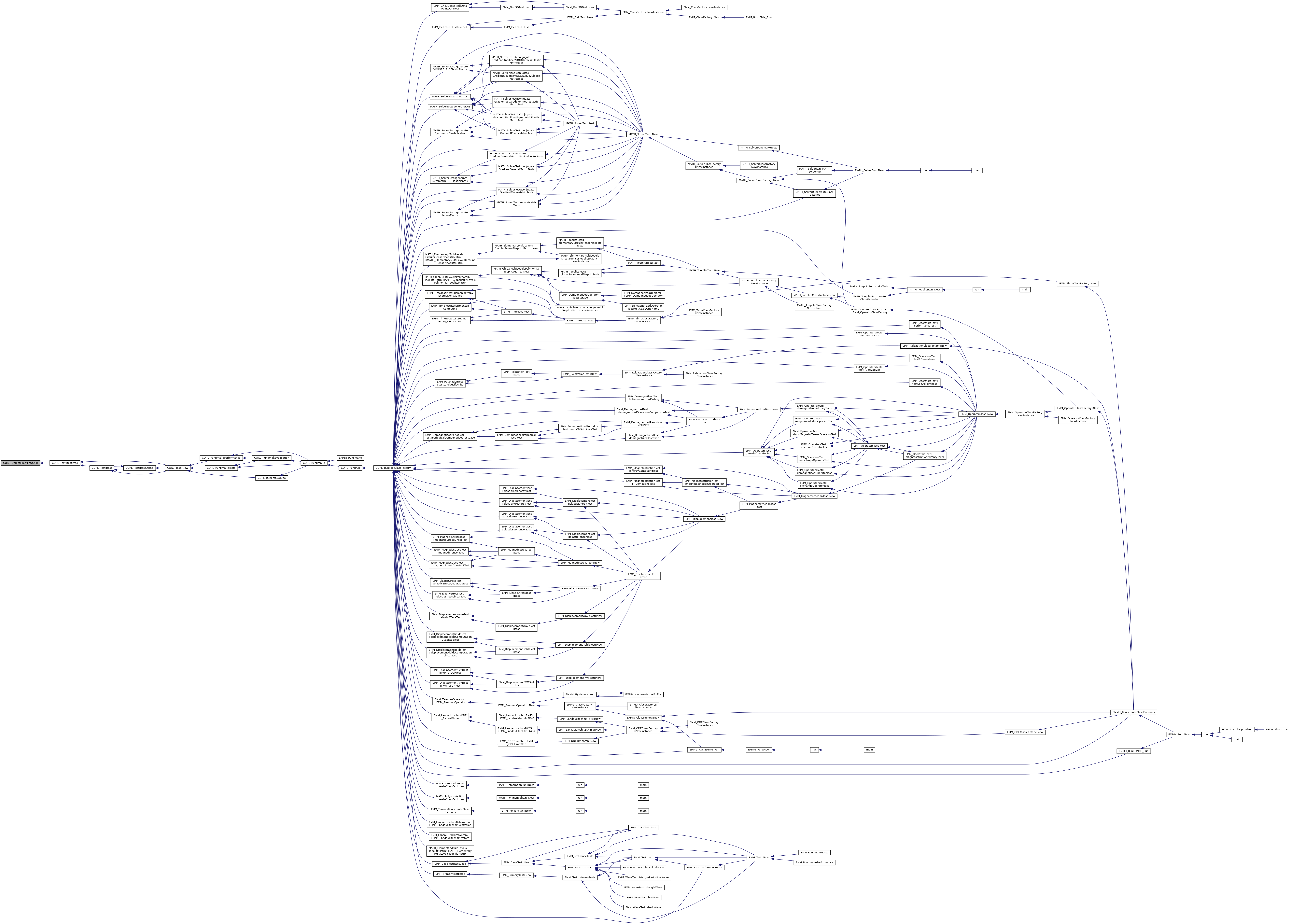
◆ getMinUIndex()
|
inlinestaticinherited |
get the min value for difference the array/vector indexing type
- Returns
- the min value for difference the array/vector indexing type
Referenced by CORE_Test::testType().
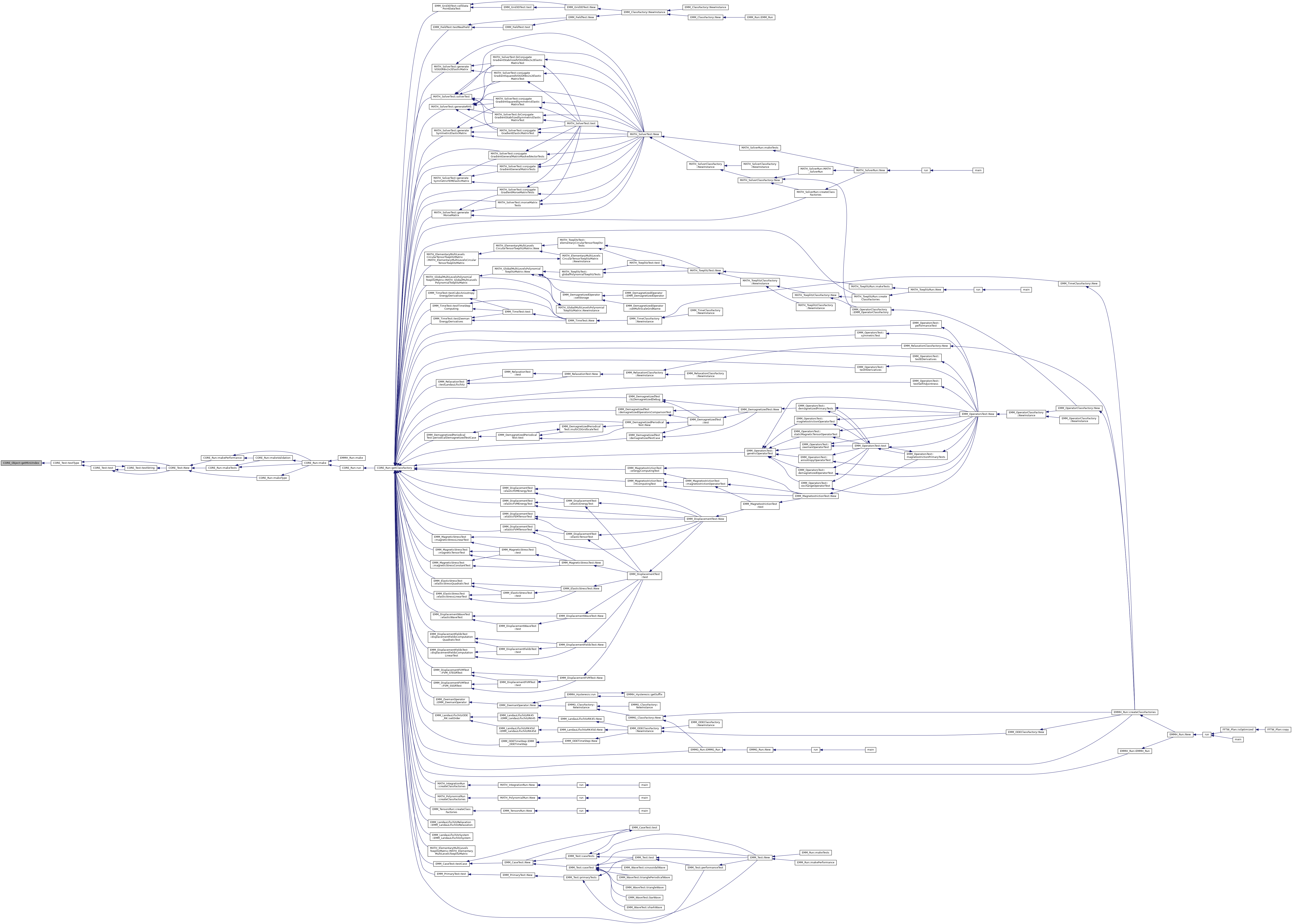
◆ getMinUInt()
|
inlinestaticinherited |
get the min value for tUInt type
- Returns
- the min value for tUInt type
Referenced by CORE_Test::testType().
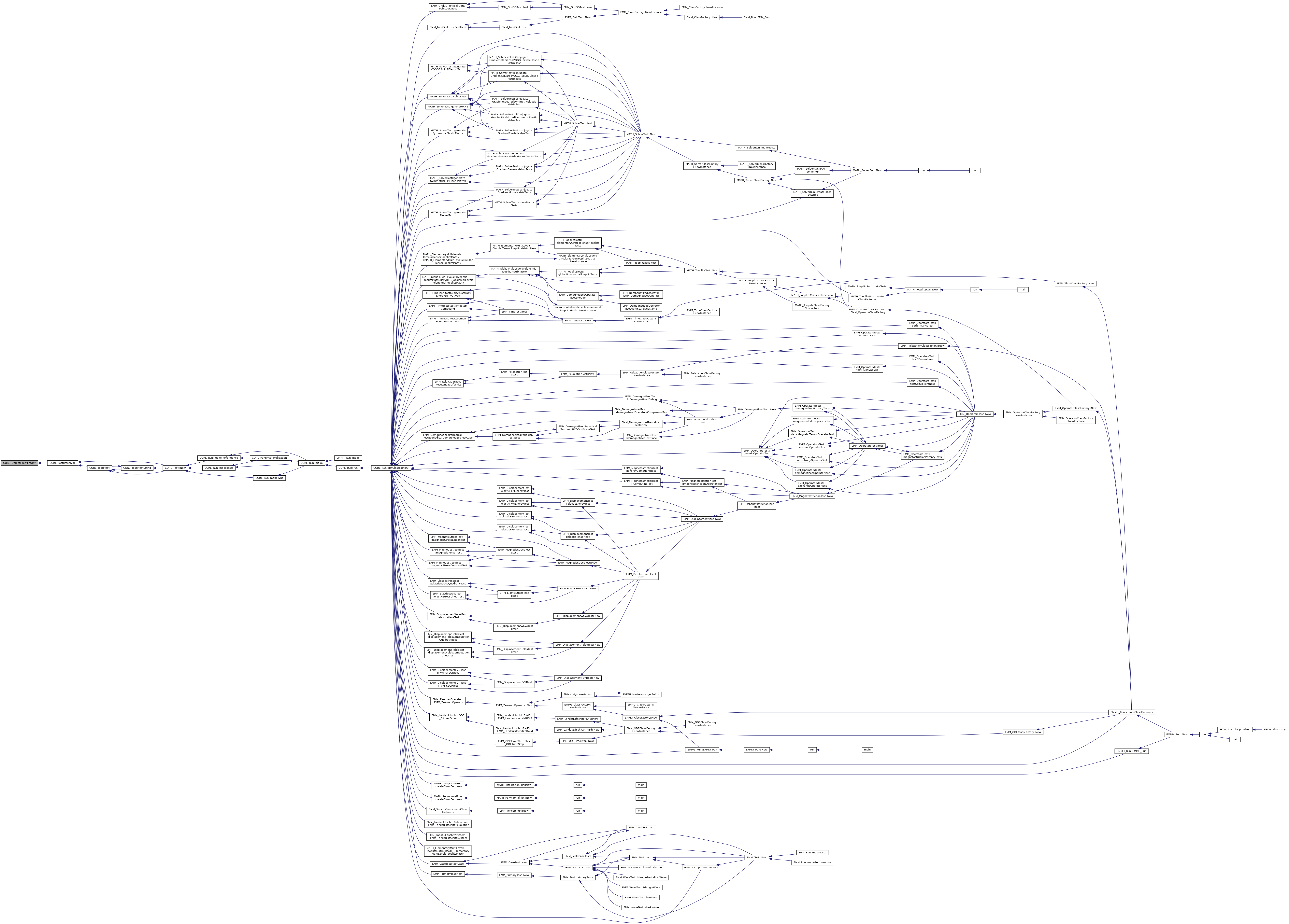
◆ getMinUInteger()
|
inlinestaticinherited |
get the min value for the unsigned integer type
- Returns
- the min value for the unsigned integer type
Referenced by CORE_Test::testType().

◆ getMinULInt()
|
inlinestaticinherited |
get the min value for tULInt type
- Returns
- the min value for tULInt type
Referenced by CORE_Test::testType().

◆ getMinULLInt()
|
inlinestaticinherited |
get the min value for tULLInt type
- Returns
- the min value for tULLInt type
Referenced by CORE_Test::testType().
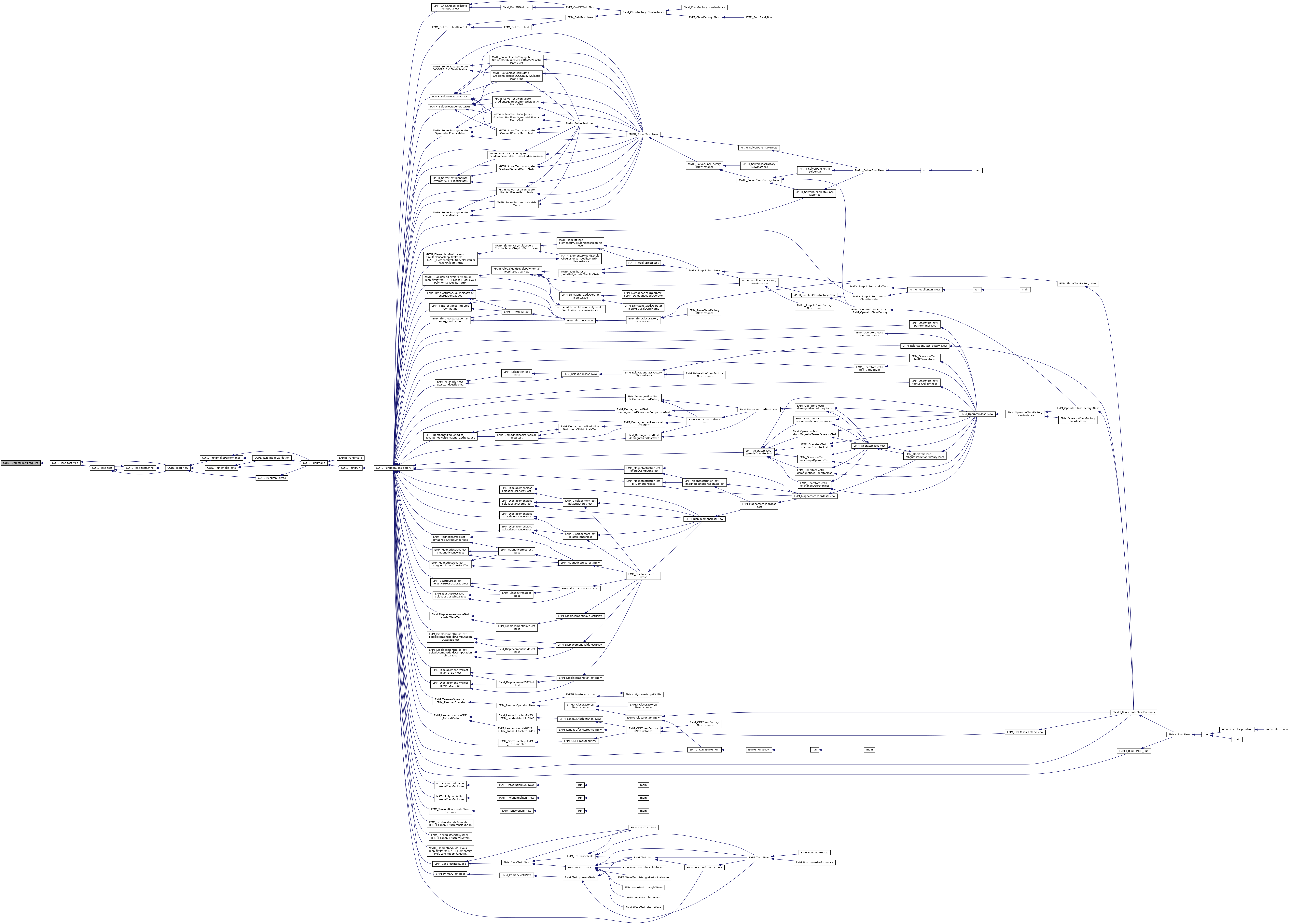
◆ getMinUSInt()
|
inlinestaticinherited |
get the min value for tUSInt type
- Returns
- the min value for tUSInt type
Referenced by CORE_Test::testType().
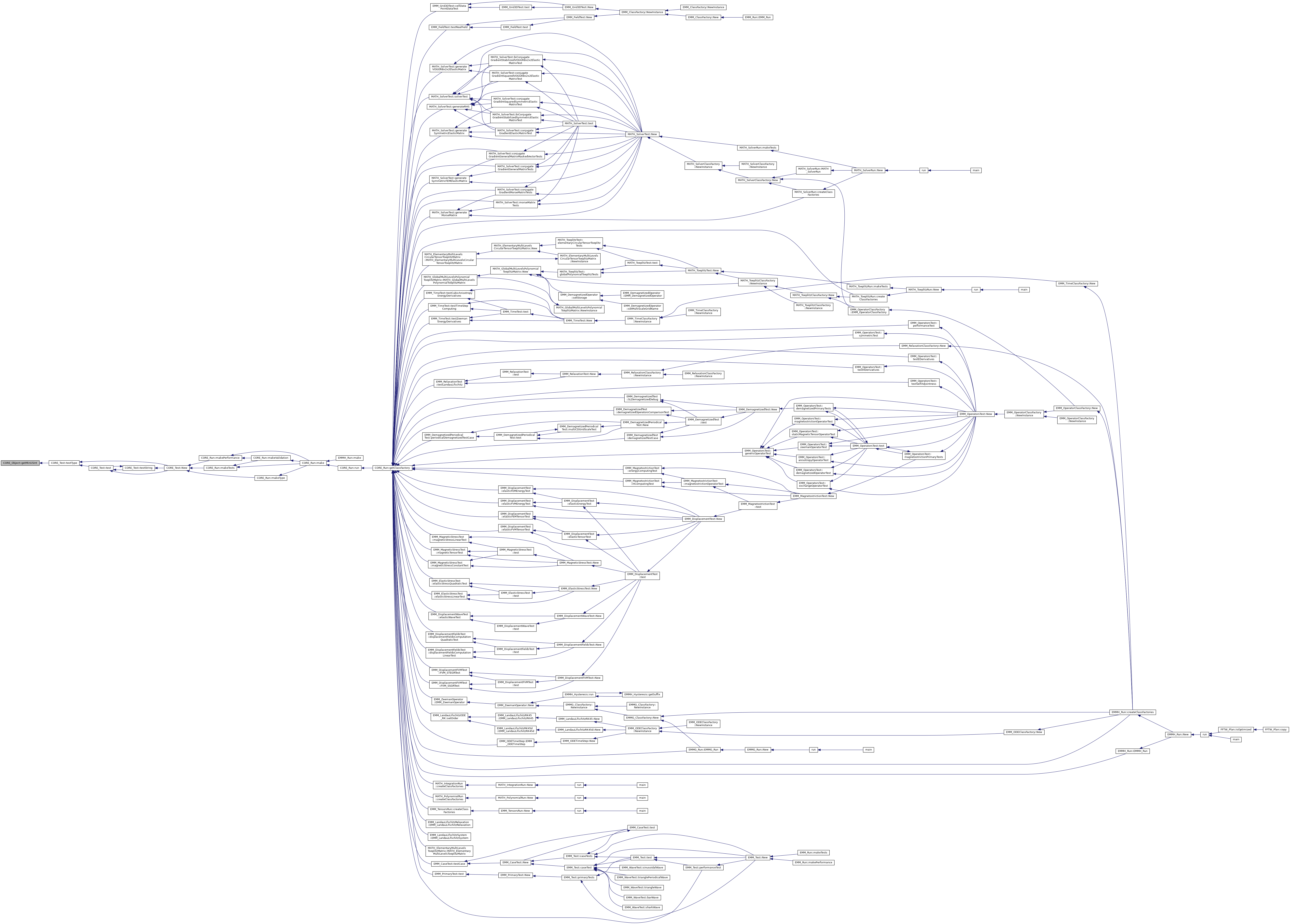
◆ getOut()
|
inlinestaticinherited |
◆ getPointerAddress()
|
inlineinherited |
return the identity string of the object
- Returns
- the identity string of the object
References CORE_Object::pointer2String().

◆ getRealEpsilon()
|
inlinestaticinherited |
get the eps which is the difference between 1 and the least value greater than 1 that is representable.
- Returns
- the eps which is the difference between 1 and the least value greater than 1 that is representable.
Referenced by MATH_P4::solveP4De(), and CORE_Test::testType().
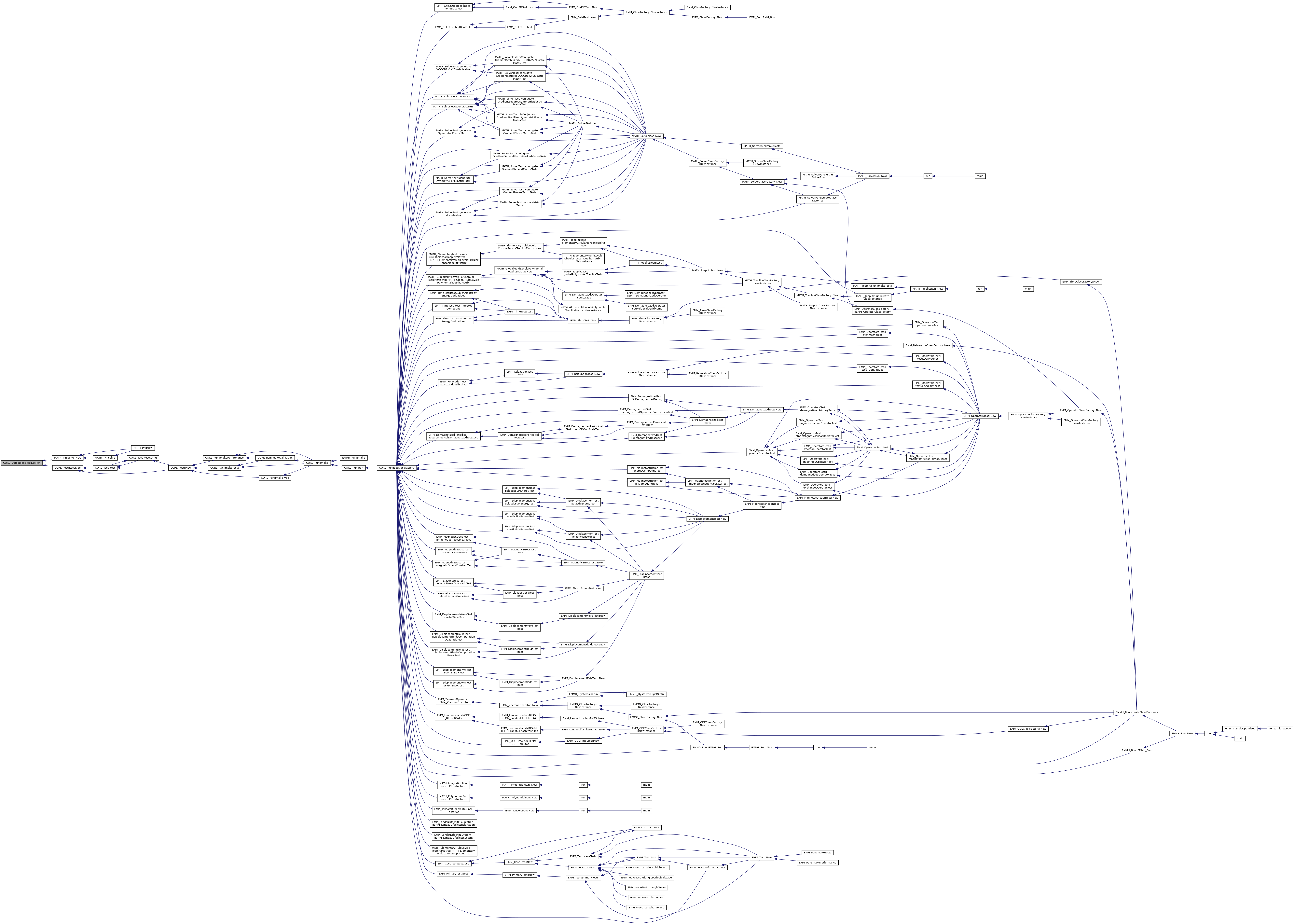
◆ getRealInfinity()
|
inlinestaticinherited |
get the infinity value
- Returns
- the inifinity value for the real type
Referenced by BrentFunction::BrentFunction(), EMM_OperatorsTest::compareDiscretizedData(), EMM_IterativeTimeStep::EMM_IterativeTimeStep(), EMM_SLElementaryDemagnetizedMatrix::Kxy(), NRFunction::NRFunction(), optimizeTimeFunction(), and CORE_Test::testType().
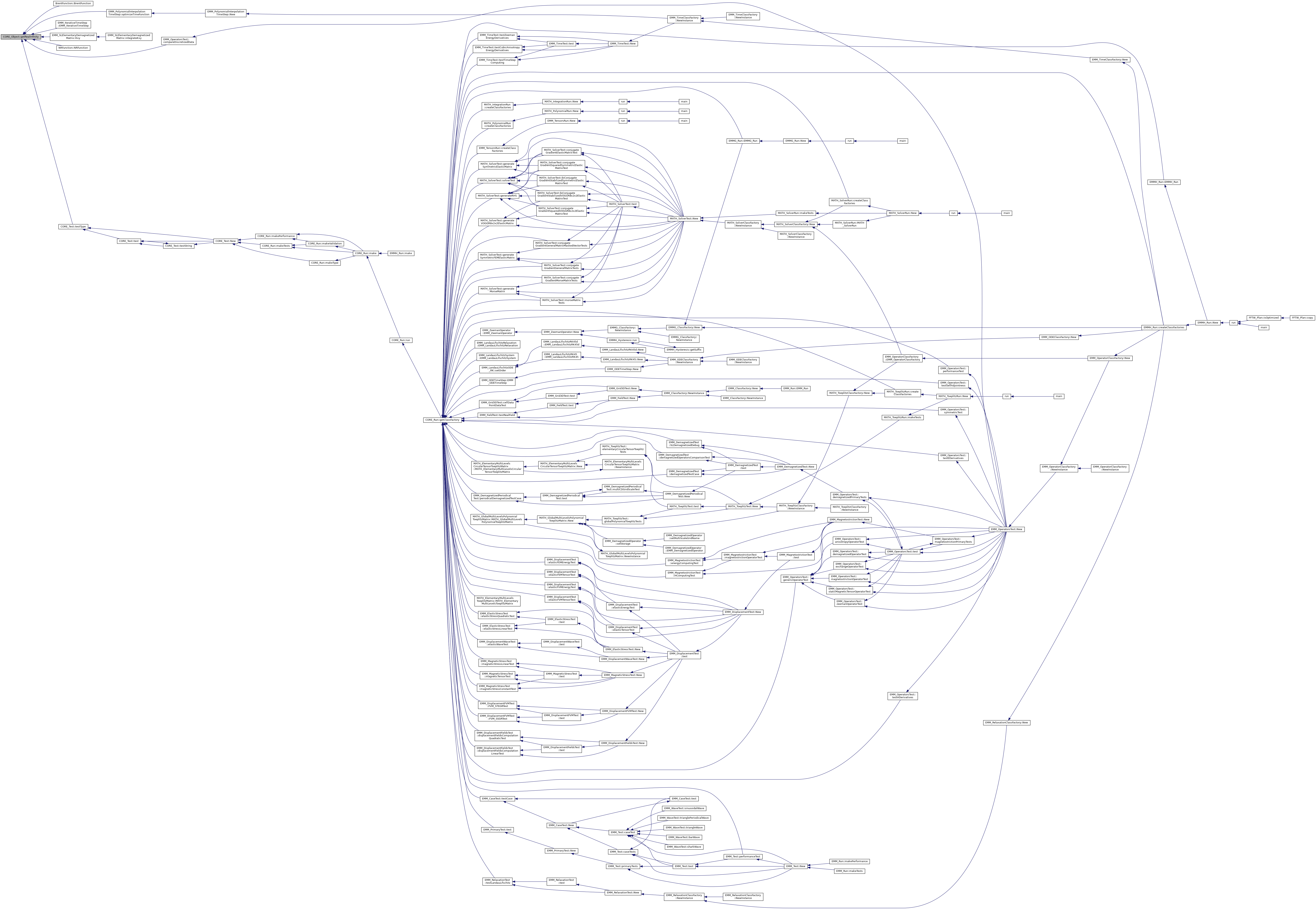
◆ getSharedPointer() [1/2]
|
inlineinherited |
get the shared pointer of this class into p
- Parameters
-
p : shared pointer of the class This
Referenced by CORE_Map< Key, Value >::getSharedPointer(), CORE_ArrayList< tString >::getSharedPointer(), EMM_Array< tCellFlag >::getSharedPointer(), CORE_Array< tCellFlag >::getSharedPointer(), CORE_MorseArray< tUChar >::getSharedPointer(), CORE_Vector< T >::getSharedPointer(), and CORE_Object::printObjectsInMemory().
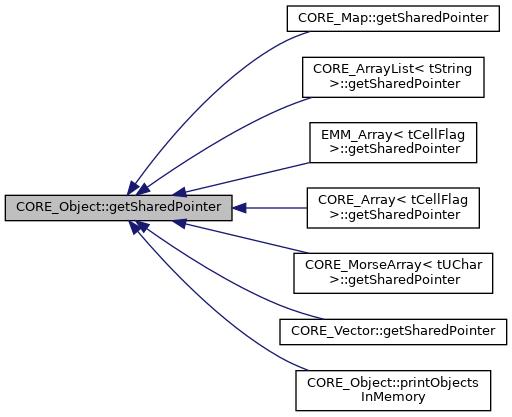
◆ getSharedPointer() [2/2]
|
inlineinherited |
get the shared pointer of this class into p
- Parameters
-
p : shared pointer of the class This
◆ getSystem() [1/2]
|
inlineprotectedinherited |
get system for reading
- Returns
- the system
Referenced by EMM_OptimalTimeStep::computeNewTimeStep(), EMM_IterativeTimeStep::computeTimeFunction(), EMM_IterativeTimeStep::computeTimeFunctionDerivative(), and EMM_SecondOrderIterativeTimeStep::computeTimeFunctionDerivatives().

◆ getSystem() [2/2]
|
inlineprotectedinherited |
get system for writing
- Returns
- the system
References EMM_Stepper::computeNewTimeStep(), tBoolean, EMM_Stepper::toString(), tReal, tString, and tUInteger.

◆ getTargetTime()
|
inlineinherited |
◆ getThread()
|
inlinestaticinherited |
get the profilier
- Returns
- the profiler
Referenced by MATH_MaskVector::add(), MATH_Vector::add(), EMM_DisplacementFEMOperator::addBoundaryElasticStress(), EMM_DisplacementFEMOperator::buildDataOnNeumannBoundaryFaces(), EMM_DisplacementFVMOperator::computeCineticEnergy(), EMM_DisplacementFVMOperator::computeElasticStress(), EMM_DisplacementFEMOperator::computeElasticStress(), EMM_DisplacementFVMOperator::computeElasticTensor(), EMM_DisplacementFEMOperator::computeElasticTensor(), EMM_StaticMagneticTensorOperator::computeEnergy(), EMM_CubicAnisotropyOperator::computeEnergy(), EMM_MagnetostrictionOperator::computeEnergy(), EMM_DisplacementOperator::computeEnergy(), EMM_AnisotropyOperator::computeEnergyWithMagneticExcitation(), EMM_DisplacementFVMOperator::computeEquilibriumMatrixDiagonalConditioner(), EMM_DisplacementFEMOperator::computeEquilibriumMatrixDiagonalConditioner(), EMM_FullExchangeOperator::computeMagneticExcitationField(), EMM_StaticMagnetostrictionOperator::computeMagneticExcitationField(), EMM_LinearAnisotropyOperator::computeMagneticExcitationField(), EMM_StaticMagneticTensorOperator::computeMagneticExcitationField(), EMM_CubicAnisotropyOperator::computeMagneticExcitationField(), EMM_MinimalExchangeOperator::computeMagneticExcitationField(), EMM_AnisotropyOperator::computeMagneticExcitationField(), EMM_MagnetostrictionOperator::computeMagneticExcitationField(), EMM_CubicAnisotropyOperator::computeMagneticExcitationFieldGradient(), EMM_AnisotropyOperator::computeMagneticExcitationFieldGradient(), EMM_DisplacementFVMOperator::computeMagneticStress(), EMM_DisplacementFEMOperator::computeMagneticStress(), EMM_OptimalTimeStep::computeOptimalTimeStep(), EMM_DisplacementFEMOperator::computeStressConstraintEnergy(), EMM_FullExchangeOperator::discretize(), EMM_MinimalExchangeOperator::discretize(), EMM_CondensedMassMatrix::discretize(), EMM_LinearAnisotropyOperator::discretize(), EMM_AnisotropyOperator::discretize(), EMM_DemagnetizedOperator::discretize(), EMMG_SLDemagnetizedOperator::discretize(), EMM_LandauLifschitzSystem::discretize(), MATH_Vector::divide(), MATH_MaskVector::dot(), MATH_Vector::dot(), EMM_4SymmetricTensors::doubleDot(), EMM_4Tensors::doubleDotCrossDoubleDotScalar(), EMM_4Tensors::doubleDotCrossProduct(), EMM_4Tensors::doubleDotCrossSquaredScalar(), EMM_4Tensors::doubleDotProduct(), MATH_Vector::init(), MATH_MaskVector::init(), EMM_LandauLifschitzODE_RK::integrateMagnetizationFieldAtTime(), EMM_DisplacementFVM_Interpolator::interpolateUAtVertices(), EMMG_SLDemagnetizedOperator::localAssembly(), EMM_DisplacementOperator::nullProjectionOnDirichletBoundary(), EMM_DisplacementOperator::periodicProjection(), EMM_2PackedSymmetricTensors::product(), EMM_CanonicalMassMatrix::product(), MATH_FullMatrix::product(), EMM_CondensedMassMatrix::product(), EMM_BlockMassMatrix::product(), MATH_MorseMatrix::product(), EMMG_SLDemagnetizedOperator::product(), EMM_DisplacementOperator::projectionOnDirichletBoundary(), EMM_LandauLifschitzSystem::resetOperatorsToInitialState(), EMM_DisplacementFVMOperator::setBoundaryFaceTypes(), FFTW_MultiDFTs::setFFT(), FFTW_MultiLevelsDFT::setFFT(), FFTW_MultiLevelsDFT::setLevels(), FFTW_MultiDFTs::setPlan(), FFTW_MultiLevelsDFT::setPlan(), EMM_CondensedMassMatrix::solve(), EMM_LandauLifschitzODE::solveODE(), EMM_4SymmetricTensors::squaredDoubleDot(), EMM_4Tensors::squaredDoubleDotCrossScalar(), EMM_4Tensors::squaredDoubleDotScalar(), EMM_CanonicalMassMatrix::symmetricDot(), EMM_CondensedMassMatrix::symmetricDot(), EMM_BlockMassMatrix::symmetricDot(), FFTW_Test::test(), MATH_SolverTest::test(), EMM_ODETest::testODE(), and EMM_Grid3D::updateLimitConditionOnPoints().

◆ getTimeStepBound()
|
inlineinherited |
get the max time step
- Returns
- the max time step
References EMM_IterativeTimeStep::computeInitialTimeStep(), EMM_IterativeTimeStep::computeNewTimeStep(), EMM_IterativeTimeStep::computeOptimalTimeSteps(), EMM_IterativeTimeStep::computeTimeFunction(), EMM_IterativeTimeStep::computeTimeFunctionDerivative(), EMM_IterativeTimeStep::mTimeStepBound, EMM_IterativeTimeStep::optimizeTimeFunction(), tBoolean, EMM_IterativeTimeStep::toString(), tReal, tString, and tUInteger.
Referenced by EMM_SecondOrderIterativeTimeStep::computeNewTimeStep(), and EMM_OptimalIterativeTimeStep::computeNewTimeStep().
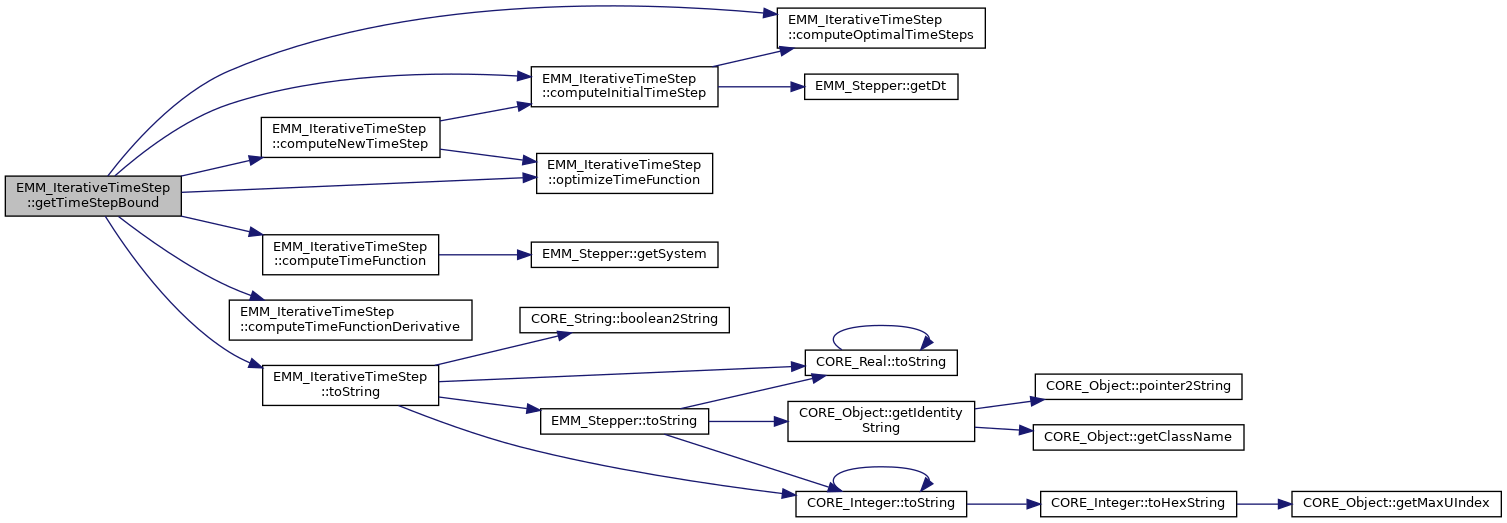

◆ getTimeStepsNumber()
|
inlineinherited |
get the time steps number
References EMM_Stepper::mTimeStepsNumber.
◆ getTypeName()
|
inlinestaticinherited |
◆ getZoomInFactor()
|
inlineinherited |
set the zoom in factor <1
- Returns
- zoom in factor < 1
References EMM_IterativeTimeStep::mZoomInFactor.
Referenced by EMM_QuasiNewtonIterativeTimeStep::optimizeTimeFunction(), EMM_QuadraticNumberIterativeTimeStep::optimizeTimeFunction(), and EMM_GoldenNumberIterativeTimeStep::optimizeTimeFunction().

◆ getZoomOutFactor()
|
inlineinherited |
set the zoom out factor >1
- Returns
- zoom out factor >1
References EMM_IterativeTimeStep::mZoomOutFactor.
Referenced by EMM_SecondOrderIterativeTimeStep::computeNewTimeStep(), EMM_OptimalIterativeTimeStep::computeNewTimeStep(), optimizeTimeFunction(), EMM_QuadraticNumberIterativeTimeStep::optimizeTimeFunction(), and EMM_GoldenNumberIterativeTimeStep::optimizeTimeFunction().

◆ is32Architecture()
|
inlinestaticinherited |
return true if the machine is a 32 bits machine
- Returns
- true is the computing is done in a 32 bits machine
References CORE_Object::pointer2String(), CORE_Object::printObjectsInMemory(), and tString.
Referenced by CORE_Test::testType().


◆ is64Architecture()
|
inlinestaticinherited |
return true if the machine is a 64 bits machine
- Returns
- true is the computing is done in a 64 bits machine
Referenced by EMM_VTK::getVTKType(), and CORE_Test::testType().
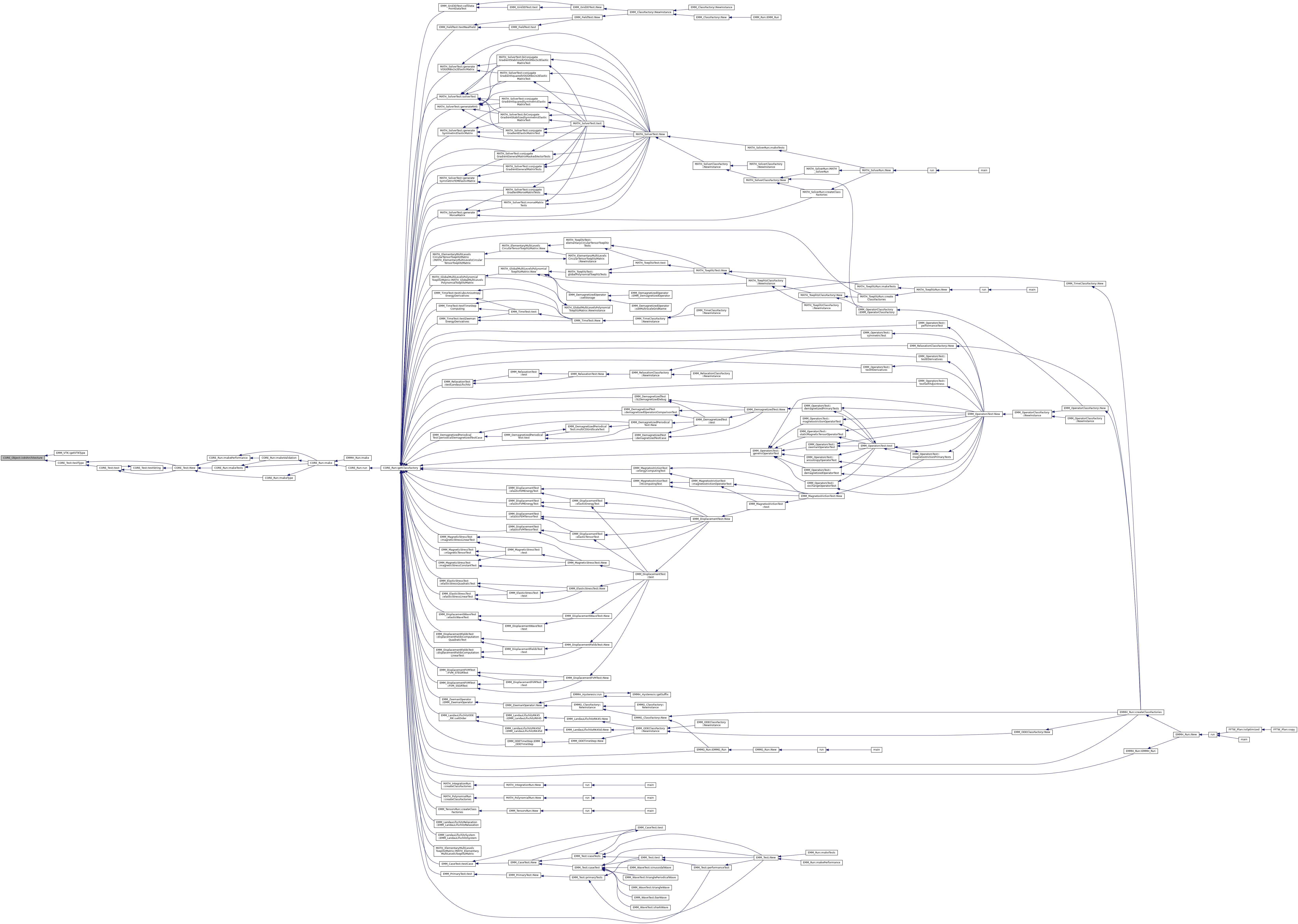
◆ isInstanceOf() [1/2]
|
inlineinherited |
test if the clas T is an instance of this class
- Returns
- true if the object is an instance of T
References null.
Referenced by MATH_ToeplitzTest::toeplitzTest().

◆ isInstanceOf() [2/2]
test if the object is an instance of className
- Parameters
-
name name of the class
- Returns
- true if the object is an instance of class Name
References CORE_Object::getIdentityString().

◆ isMemoryChecked()
|
inlinestaticinherited |
get if the memory checking is used
- Returns
- true: if the memory checking is used.
References CORE_Object::getClassName(), CORE_Object::mIsMemoryTesting, and tString.
Referenced by main().


◆ isSystemCompatible()
|
inlineprotectedvirtualinherited |
return true if the system is compatible
- Parameters
-
system : system to optimize
- Returns
- true if the system is compatible with the time optimizer
Reimplemented in EMM_OptimalTimeStep, and EMM_ODETimeStep.
References null.
Referenced by EMM_ODETimeStep::isSystemCompatible(), EMM_OptimalTimeStep::isSystemCompatible(), and EMM_Stepper::setSystem().

◆ New()
|
inlinestatic |
build a shared pointer associated to the class
References EMM_PolynomialInterpolationTimeStep(), optimizeTimeFunction(), tBoolean, tReal, and tUInteger.
Referenced by EMM_TimeClassFactory::NewInstance().


◆ optimizeTimeFunction()
|
virtual |
optimize the time step function
- Parameters
-
dt - input : the initial time step
- output : the optimal time step
dt_bound : max value for dt evaluationsNumber the number of calling of the method EMM_LandauLisfchitzSystem::computePredictiveEnergyAtTime()
- Returns
- true if the optimization has succeeded
Reimplemented from EMM_GoldenNumberIterativeTimeStep.
References EMM_IterativeTimeStep::computeTimeFunction(), EMM_IterativeTimeStep::computeTimeFunctionDerivative(), CORE_Object::getRealInfinity(), EMM_IterativeTimeStep::getZoomOutFactor(), mP3, mP4, EMM_GoldenNumberIterativeTimeStep::optimizeTimeFunction(), MATH_P3::solve(), tReal, and tUSInt.
Referenced by New().
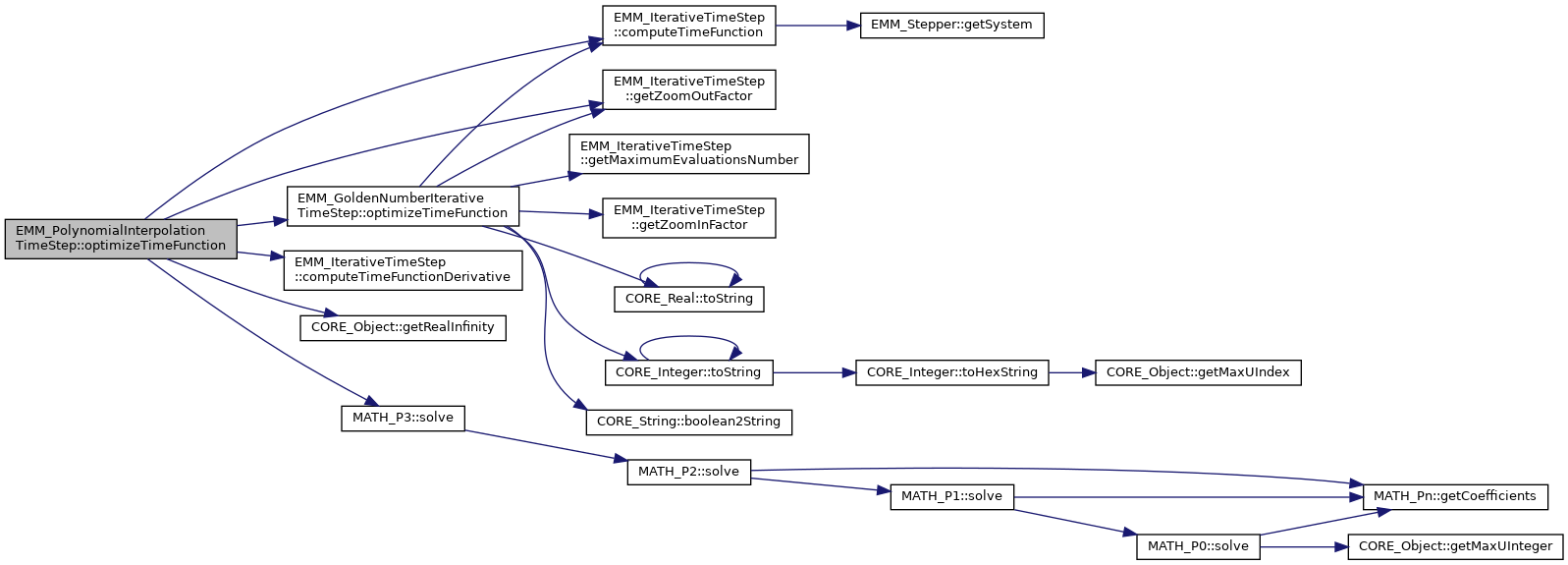

◆ out()
|
inlinestaticinherited |
get the output
- Returns
- the output stream
Referenced by EMM_Matter::adimensionize(), EMM_DisplacementFVMOperator::backup(), EMM_DisplacementOperator::backup(), MATH_ElementaryMultiLevelsToeplitzMatrix::buildSpectralVectorProjector(), EMM_Test::caseTest(), EMM_Test::caseTests(), EMM_MatterField::computeAnisotropyDirectionsField(), EMM_OptimalTimeStep::computeOptimalTimeStep(), MATH_MultiLevelsToeplitzMatrix::copy(), CORE_Exception::CORE_Exception(), EMM_MatterField::createAnisotropyOperator(), CORE_Run::createIO(), EMM_ElementaryTest::defaultBackupTest(), EMM_ElementaryTest::defaultTest(), MATH_MultiLevelsFFTToeplitzMatrix::diagonalize(), EMM_DisplacementFVMOperator::discretize(), EMM_MagnetostrictionOperator::discretize(), EMM_DisplacementFEMOperator::discretize(), EMM_4SymmetricTensors::doubleDot(), EMM_4Tensors::doubleDotCrossDoubleDotScalar(), EMM_TensorsTest::doubleDotCrossDoubleDotScalarTests(), EMM_4Tensors::doubleDotCrossProduct(), EMM_TensorsTest::doubleDotCrossProductTests(), EMM_4Tensors::doubleDotCrossSquaredScalar(), EMM_TensorsTest::doubleDotCrossSquaredScalarTests(), EMM_4Tensors::doubleDotProduct(), EMM_TensorsTest::doubleDotProductTests(), EMM_DisplacementWaveTest::elasticWaveTest(), EMM_Test::elementaryTests(), FFTW_Test::fftwTutorial(), MATH_IntegrationTest::gaussLegendreTest(), EMM_MagnetostrictionTest::HComputingTest(), EMM_DemagnetizedPeriodicalTest::HTest(), EMMH_HysteresisTest::hysteresisDefaultCycleTest(), EMM_TensorsTest::initializationTests(), EMM_MultiScaleGrid::initialize(), EMM_MultiScaleSDGrid::initialize(), EMM_MatterField::loadFromANIFile(), EMM_AnisotropyDirectionsField::loadFromFile(), EMM_Matter::loadFromFile(), EMM_Grid3D::loadFromGEOFile(), EMM_MatterField::loadFromLOCFile(), EMM_Array< tCellFlag >::loadFromStream(), EMM_Matter::loadFromStream(), EMM_Matter::loadMattersFromFile(), EMM_Run::loadSystemFromOptions(), EMM_ElementaryTest::magnetostrictionBackupTest(), CORE_Run::make(), EMMH_Run::makeHysteresis(), EMM_Run::makeRun(), CORE_Run::makeType(), EMM_ElementaryTest::optionsTest(), MATH_PolynomialTest::P4Tests(), EMM_Test::primaryTests(), EMM_LandauLifschitzSystem::printLog(), CORE_Run::printOptions(), EMM_2PackedSymmetricTensors::product(), EMMG_SLDemagnetizedOperator::projectionOnSpectralSpace(), CORE_Run::readOptionsFromCommandLine(), CORE_Test::readVectorTest(), EMM_DemagnetizedPeriodicalTest::relaxationTest(), EMM_DisplacementFVMOperator::restore(), EMM_DisplacementOperator::restore(), EMM_Input::restoreBackup(), EMMH_Hysteresis::run(), EMM_Output::save(), EMM_AnisotropyDirectionsField::saveToFile(), EMM_MatterField::saveToFile(), EMM_Grid3D::saveToGEOFile(), CORE_IOTest::searchTest(), EMMH_Hysteresis::setInitialMagnetizationField(), MATH_MultiLevelsToeplitzMatrix::setLevels(), EMM_4SymmetricTensors::squaredDoubleDot(), EMM_4Tensors::squaredDoubleDotCrossScalar(), EMM_TensorsTest::squaredDoubleDotCrossScalarTests(), EMM_4Tensors::squaredDoubleDotScalar(), EMM_TensorsTest::squaredDoubleDotScalarTests(), EMM_TensorsTest::squaredDoubleDotTests(), EMM_MatterTest::testAdimensionize(), EMM_MatterTest::testANIFile(), CORE_Test::testComplex(), CORE_Test::testDateWeek(), FFTW_Test::testDFT(), EMM_MatterTest::testIO(), EMM_ODETest::testODE(), CORE_Test::testOut(), CORE_Test::testReal(), EMM_FieldTest::testRealArray(), EMM_Grid3DTest::testSegment(), EMM_Grid3DTest::testThinSheet(), CORE_Test::testTime(), CORE_Test::testType(), MATH_FullMatrix::toString(), EMM_DemagnetizedPeriodicalTest::xyPeriodicalCubeSDGTest(), and EMM_DemagnetizedPeriodicalTest::xyPeriodicalSheetSDGTest().

◆ pointer2String()
|
staticinherited |
return the string representation of a pointer
- Parameters
-
obj : oject to get the string pointer
- Returns
- the string pointer of the object
References tString.
Referenced by CORE_Object::CORE_Object(), CORE_Object::getIdentityString(), CORE_Object::getPointerAddress(), CORE_Object::is32Architecture(), and CORE_Object::~CORE_Object().

◆ printObjectsInMemory() [1/2]
|
staticinherited |
print object in memory
- Parameters
-
f : output to print the objects in memory
References CORE_Object::getIdentityString(), CORE_Object::getSharedPointer(), CORE_Object::mIsMemoryTesting, CORE_Object::mObjects, and tInteger.

◆ printObjectsInMemory() [2/2]
|
inlinestaticinherited |
print object in memory in the standart output
Referenced by CORE_Object::is32Architecture(), and main().
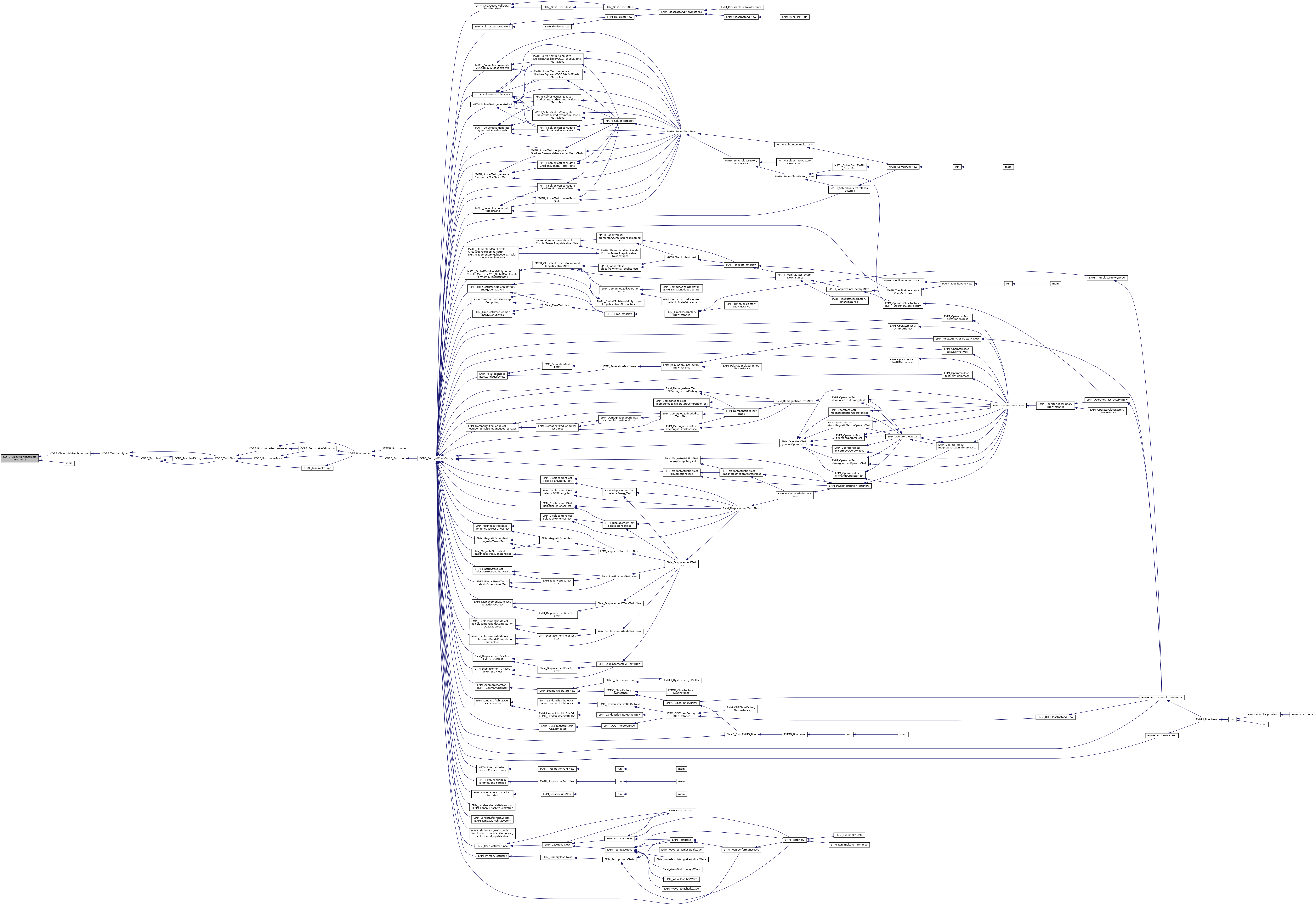
◆ resetInitialTimeStepToOptimalOne()
|
inlineinherited |
set if the initial time step is set to optimal time step
- Parameters
-
isReset : true to recompute the initial time step from the optimal one
◆ resetOut()
|
inlinestaticinherited |
◆ resetSystem()
|
inherited |
reset the reverse system relation
References EMM_Stepper::mSystem, and null.
Referenced by EMM_Stepper::setSystem().

◆ resetThread()
|
inlinestaticinherited |
◆ setCharacteristicTime()
|
inlineinherited |
set the characteristic time the real time will be t. mTc in seconds
Referenced by EMM_LandauLifschitzSystem::adimensionize().

◆ setDt()
|
inlineinherited |
set the time step
- Parameters
-
[in] dt : time step
Referenced by EMMH_Hysteresis::run().

◆ setDtFactor()
|
inlineinherited |
set the dt factor
- Parameters
-
[in] f the multiply factor of dt
◆ setInitialTimeType() [1/2]
|
inlineinherited |
set the initial time type
- Parameters
-
t : intitial time type in {INITIAL_TIME_AS_REGULAR,INTIAL_TIME_AS_LINEAR_H}
◆ setInitialTimeType() [2/2]
|
inlineinherited |
set the initial time type
- Parameters
-
t : intitial time type in {"regular","optimal-linear","max-optimal-linear-constant}
References EMM_IterativeTimeStep::INITIAL_TIME_AS_MAX_LINEAR_CONSTANT_H.
◆ setIntegrationOrder()
|
inlineinherited |
set the order of evaluation the time function
- Parameters
-
order is iether 1 or 2
◆ setIsMemoryChecked()
|
inlinestaticinherited |
set if the memory checking is used
- Parameters
-
v : true to check memory
Referenced by main().

◆ setMaximumEvaluationsNumber()
|
inlineinherited |
set the max evalution of Energy for finding the best dt for which the variation of energy is <0
- Parameters
-
n the max loops number
◆ setMaxTimeStepGap()
|
inlineinherited |
set the max gap betewen 2 time step
- Parameters
-
dt max time set gap
◆ setMinTimeStep()
|
inlineinherited |
set the min time step of iterative time step computing
- Parameters
-
dt : is the min value of the time step under which the computing is stopped
◆ setOut()
|
inlinestaticinherited |
◆ setSystem()
|
inherited |
set the reverse system relation
- Parameters
-
system : the system to set
- Returns
- true if the system is compatible
References CORE_Object::getThis(), EMM_Stepper::isSystemCompatible(), EMM_Stepper::mSystem, null, and EMM_Stepper::resetSystem().

◆ setTargetTime()
|
inlineinherited |
set the end time with respect of the characteristic time real time = t * getCharacteristicTime()
- Parameters
-
t target time
References EMM_Stepper::mEndTime, and EMM_Stepper::mTimeStepsNumber.
◆ setThis()
|
inlineprotectedinherited |
set this weak shared pointer called toDoAfterThis setting method
- Parameters
-
p : shared pointer of the class This
References CORE_Object::toDoAfterThisSetting().

◆ setThread()
|
inlinestaticinherited |
set the thread
- Parameters
-
thread the shared pointer to the thread
References null.
Referenced by EMM_Run::EMM_Run(), EMM_TensorsRun::EMM_TensorsRun(), and MATH_SolverRun::MATH_SolverRun().

◆ setTimeStepBound()
|
inlineinherited |
set the max time step
- Parameters
-
dt max time step
◆ setTimeStepsNumber()
|
inlineinherited |
set the time steps number
◆ setZoomInFactor()
|
inlineinherited |
set the zoom in factor <1
- Parameters
-
z zoom in factor
◆ setZoomOutFactor()
|
inlineinherited |
set the zoom out factor >1
- Parameters
-
z zoom out factor
◆ SP_OBJECT()
|
private |
◆ toDoAfterThisSetting()
|
inlineprotectedvirtualinherited |
method called after the setting of the shared pointer this method can only be called once.
Reimplemented from CORE_Object.
Reimplemented in EMM_DisplacementOperator, EMM_DisplacementFVMOperator, EMM_GaussLegendreRelaxation, and EMM_GradGaussLegendreRelaxation.
Referenced by EMM_GaussLegendreRelaxation::toDoAfterThisSetting(), and EMM_DisplacementOperator::toDoAfterThisSetting().

◆ toString()
|
virtualinherited |
turn the regular time into a string
- Returns
- the string representation of the class
Reimplemented from EMM_Stepper.
References CORE_String::boolean2String(), EMM_IterativeTimeStep::INITIAL_TIME_AS_MAX_LINEAR_CONSTANT_H, EMM_IterativeTimeStep::INITIAL_TIME_AS_OPTIMAL_AFFINE_H, EMM_IterativeTimeStep::INITIAL_TIME_AS_REGULAR, EMM_IterativeTimeStep::mInitialTimeType, EMM_IterativeTimeStep::mIsInitialTimeStepReset, EMM_IterativeTimeStep::mMaxEvaluationsNumber, EMM_IterativeTimeStep::mMaxTimeStepGap, EMM_IterativeTimeStep::mMinTimeStep, EMM_IterativeTimeStep::mOrder, EMM_IterativeTimeStep::mTimeStepBound, EMM_IterativeTimeStep::mZoomInFactor, EMM_IterativeTimeStep::mZoomOutFactor, CORE_Real::toString(), CORE_Integer::toString(), EMM_Stepper::toString(), and tString.
Referenced by EMM_IterativeTimeStep::getTimeStepBound().


Member Data Documentation
◆ Gamma
|
staticinherited |
◆ INITIAL_TIME_AS_MAX_LINEAR_CONSTANT_H
|
staticinherited |
◆ INITIAL_TIME_AS_OPTIMAL_AFFINE_H
|
staticinherited |
Referenced by EMM_IterativeTimeStep::toString().
◆ INITIAL_TIME_AS_REGULAR
|
staticinherited |
Referenced by EMM_IterativeTimeStep::computeInitialTimeStep(), and EMM_IterativeTimeStep::toString().
◆ mP3
|
private |
Referenced by optimizeTimeFunction().
◆ mP4
|
private |
Referenced by optimizeTimeFunction().
◆ Mu0
|
staticinherited |
Referenced by EMM_MatterField::adimensionize(), EMM_MagnetostrictionOperator::adimensionize(), EMM_Matter::adimensionize(), EMM_CubicAnisotropyOperator::ComputeMagneticExcitation(), EMM_CubicAnisotropyOperator::computeMagneticExcitationField(), EMM_CubicAnisotropyOperator::computeMagneticExcitationFieldGradient(), EMM_CubicAnisotropyOperator::ComputeMagneticExcitationGradient(), EMM_Test::createMatters(), EMM_MatterField::getElasticTensorAdimensionizedParameter(), and EMM_MatterTest::testAdimensionize().
◆ NULL_VALUE
|
staticinherited |
Referenced by EMM_DisplacementFVM_VOGGROperator::computeGradAlmostNullUAtCellByOstrogradskiGreenIntegration(), EMM_DisplacementFVM_VTEGROperator::computeGradAlmostNullUAtCellByTaylorExpansionWithNeumannInterpolation(), EMM_DisplacementFVM_SSGROperator::computeGradAlmostNullUAtFaceByStokesIntegration(), EMM_DisplacementFVM_VOGGROperator::computeGradAlmostNullUAtNextCellByOstrogradskiGreenIntegration(), EMM_DisplacementFVM_VTEGROperator::computeGradUAtCellByTaylorExpansionWithNeumannInterpolation(), EMM_DisplacementFVM_VGROperator::computeGradUAtFace(), EMM_DisplacementFVM_SSGROperator::computeGradUAtFaceByStokesIntegration(), EMM_DisplacementFVM_STEGROperator::computeGradUAtFaceByTaylorExpansion(), EMM_DisplacementFVM_Interpolator::interpolateUAtEdge(), and EMM_DisplacementFVM_Interpolator::interpolateUAtVertices().
◆ X
|
staticinherited |
◆ Y
|
staticinherited |
Referenced by EMMG_SLSDXPeriodicMultiScale::computeMultiGridExcitationField(), EMMG_RealField::fitToSize(), EMM_MassMatrix::getElementVolume(), EMM_CanonicalMassMatrix::isSymmetric(), EMM_BlockMassMatrix::product(), EMM_CondensedMassMatrix::product(), EMM_RealField::setValue(), EMM_CanonicalMassMatrix::solve(), EMM_BlockMassMatrix::solve(), EMM_BlockMassMatrix::toString(), and EMMG_RealField::wedge().
◆ Z
|
staticinherited |
The documentation for this class was generated from the following files:



 1.8.13
1.8.13